Competitions and programs (110)
2014 Peter Porter Poetry Prize Winner
Australian Book Review is delighted to announce that Jessica L. Wilkinson has won the 2014 ABR Peter Porter Poetry Prize for her poem ‘Arrival Platform Humlet’. Jessica receives $4,000 for her winning poem, which was drawn from a field of just under 700 entries. The judges were Lisa Gorton and Felicity Plunkett.
‘I am truly honoured that my poem ‘‘Arrival Platform Humlet’’ was recognised in this way and very privileged to be associated with the good name of Peter Porter.’
Jessica L. Wilkinson
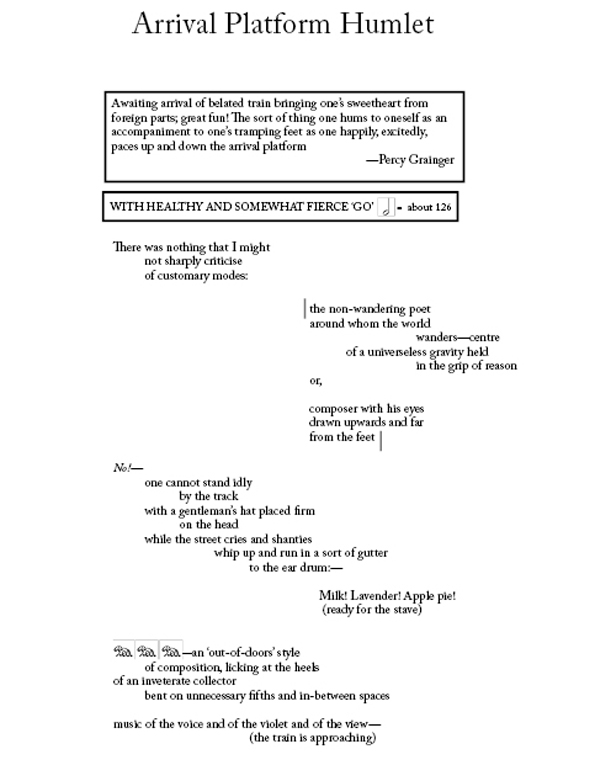
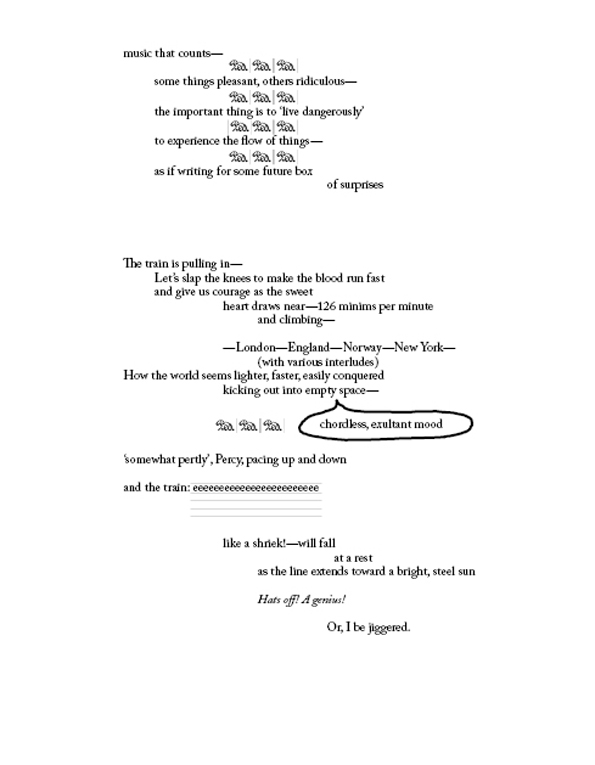
2014 winner
2014 winner
The Calibre Prize, created in 2007, has quickly established itself as Australia’s major prize for an original essay, generating brilliant new essays and fresh insights into culture, society, and the human condition. Click here for more information about past Calibre Prize winners.
Australian Book Review has much pleasure in announcing the winner of the 2014 Calibre Prize for an Outstanding Essay. Christine Piper receives $5000 for her essay ‘Unearthing the Past’. The judges – Morag Fraser and ABR Editor Peter Rose – chose Piper’s essay from a large field. We congratulate all of them, especially the winner and shortlisted essayists.
Peter Rose said, ‘Christine Piper’s inspired essay complements Calibre’s long record of highlighting essays of real quality and moment. Readers will not easily forget this bracing and important essay.’
Christine Piper writes about biological weapons and experiments on living human beings in pre-war and wartime Japan. The remains of just some of the victims (the overall death toll is estimated at 250,000 to 300,000) were discovered in Tokyo twenty-five years ago. They have never been identified. The story takes Dr Piper to Japan, where she interviews key lawyers and activists who are seeking answers. We also meet the unspeakable Shiro Ishii, dubbed the Josef Mengele of Japan. Ishii, who masterminded Japan’s biological warfare program, escaped prosecution through an immunity deal with the United States. He died at home in 1959.
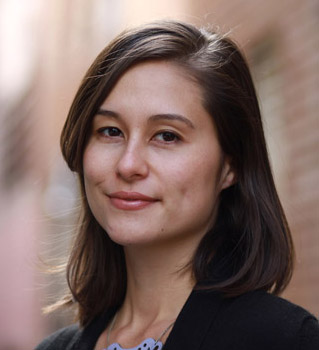 CHRISTINE PIPER is a freelance writer and editor. Born in South Korea to a Japanese mother and Australian father, she moved to Australia when she was one. She has previously taught English and studied Japanese in Japan, and currently lives in New York with her husband. See: www.christinepiper.com
CHRISTINE PIPER is a freelance writer and editor. Born in South Korea to a Japanese mother and Australian father, she moved to Australia when she was one. She has previously taught English and studied Japanese in Japan, and currently lives in New York with her husband. See: www.christinepiper.com
On learning that she had won the Calibre Prize, Christine Piper commented: ‘I am honoured to be chosen as the winner, and delighted that my essay will have a wide audience thanks to Australian Book Review and Colin Golvan. I’d like to dedicate the award to the activists who have spent years campaigning and raising awareness about this dark chapter of Japan’s past.’
Christine Piper's winning essay is published in the April 2014 issue of ABR.
![]() Click here to download the media release.
Click here to download the media release.
Click here to read Christine Piper's essay: 'Unearthing the Past'.
Purchase the April 2014 print edition.
Subscribe to ABR Online to gain access to this issue online, plus the ABR archive (containing all Calibre Prize essays published from 2011).
Shortlisted essays
- Ruth Balint: ‘The Paradox of Weimar: Hitlerism and Goethe’
- Martin Edmond: ‘Five Towns’
- Rebecca Giggs: ‘Open Ground: Trespassing on the Pilbara’s Mining Boom’
- Ann-Marie Priest: ‘“Something very difficult and unusual”: The Love Song of Henry and Olga’
- Stephen Wright: ‘Blows upon a Bruise’
ABR gratefully acknowledges the support of Mr Colin Golvan SC.
Jolley Prize Frequently Asked Questions
I don’t live in Australia and I am not an Australian citizen. Can I still enter?
Yes, you can. Anyone can enter the Jolley Prize. But all stories must be written in English.
I’m interested in the Jolley Prize but don’t know much about it. How can I familiarise myself with the competition?
This is the fifteenth time that Australian Book Review has presented a short story prize. Past issues containing the shortlisted and winning stories are available for subscribers to read online in our online archive or to purchase in hard-copy from our online store.
Click here for more information about past winners.
What is the entry period for the 2024 Jolley Prize?
Entries for the 2024 Jolley Prize were open from 16 January 2024 to 22 April 2024. The three shortlisted stories will be published in the August or September 2024 issue and the winner will be announced later in the month of publication.
Is there a set theme or topic for the Jolley Prize?
No, stories can be on any subject and in any style.
What is the word limit for the Jolley Prize?
Stories must be between 2,000 and 5,000 words in length.
Can I submit a non-fiction story?
No, the Jolley Prize is for fiction, although entries can be inspired by real life. ABR also presents the annual Calibre Essay Prize, which is intended for non-fiction essays.
Can I enter multiple stories in one entry?
No. Separate entries must be made, and transactions paid, for each story entered into the Jolley Prize. This is to ensure that a record is kept of each story entered, and also to ensure that payment is successfully made for each.
Is there a limit to the number of stories I can enter?
No, but as stated above, each story must be entered and paid for separately, as individual entries.
I have written a story with someone else. Are we eligible to enter the Jolley Prize?
No, stories entered in the Jolley must be written by one individual author.
My friend/relative has written a story, can I enter it on their behalf?
No, stories must be entered by their authors.
Are translated stories eligible for entry in the Jolley Prize?
No.
To be eligible for entry in the Jolley Prize stories must not have been previously published, what constitutes ‘publication’?
Publication includes, but is not limited to, publication in print and online (for example in a journal/magazine/anthology or on a website). Publication on a personal blog/website constitutes publication. If a story has been written and assessed as part of a writing course but has not been distributed further, that does not constitute publication.
My story was shortlisted/commended for another prize, can I enter it in the Jolley Prize?
If your story was shortlisted/commended for another prize but was not published, then it can be entered in the Jolley. Please contact us if you are unsure about eligibility.
Can I submit the work I have entered in the Jolley Prize elsewhere while I await notification?
Initially, stories may be entered in other prizes or submitted to other publications. However, if your story is longlisted in the Jolley Prize you must confirm eligibility and exclusivity – i.e. you must either withdraw it from the other outlets/prizes or withdraw it from the Jolley Prize.
When will longlisted authors be contacted?
Notification will take place in July or early August 2024. Longlisted authors who are not shortlisted will be notified in July/August and can then offer their stories elsewhere. See our Terms and Conditions for more information.
When will non-longlisted authors be notified?
Notification will take place in July or early August 2024.
When and where will the shortlisted stories be published?
The three shortlisted stories will be published in the August or September 2024 issue of ABR and on the ABR website.
What is the prize money for the 2023 Jolley Prize?
The Jolley Prize is worth a total of $12,500 (AUD). This will be split between the three shortlisted authors in the following way:
First Prize: $6,000
Second Prize: $4,000
Third Prize: $2,500
Can I pay the discounted entry fee?
Current print subscribers and yearly digital subscribers may pay the discounted entry fee of AU$20 per entry. Non-subscribers pay AU$30 per entry. If you would like a print and/or digital subscription to ABR, click here.
Alternatively you can purchase a yearly digital subscription to ABR with your entry for the combined price of AU$100. Your sign-in details will be automatically sent to you by email, and you will be entitled to enter any additional stories at the discounted rate. We also offered combined print subscriptions and Jolley Prize entry packages. A full list of entry rates appears below:
Online entry (current ABR subscriber) - $20
Online entry (standard/non subscriber) - $30*
Online entry + 1-year digital subscription - $100
Online entry + 1-year print & digital subscription (Australia) - $120
Online entry + 1-year print & digital subscription (NZ and Asia) - $200
Online entry + 1-year print & digital subscription (Rest of World) - $220
Note: Print subscribers must provide their subscriber number to be eligible for the discounted rate (this can be found on the flysheet sent out with the magazine, or on renewal notices – alternatively, This email address is being protected from spambots. You need JavaScript enabled to view it. and we will provide you with your subscriber number). Likewise, yearly digital subscribers must provide the email address with which they registered the online subscription.
Can I pay with PayPal?
At this time we are accepting credit card payments only – Visa and MasterCard. We do not accept Amex.
Will I receive confirmation of payment?
Yes, once you have submitted your online entry and payment form, you will receive a confirmation email at the email address you supplied in the form. Keep a copy for your records. If you cannot find the confirmation email, be sure to check that it has not gone to your spam or junk folders.
Can I enter by post?
No, entries must be submitted online.
Who are the judges this year?
The 2024 judges are Patrick Flanery, Melinda Harvey and Susan Midalia.
Will you give me feedback about my story?
Unfortunately, we don’t have the time or resources to comment on individual stories.
How should I format my story?
Entries should be presented in 12 pt font size. The pages of stories should be numbered. (Please note, if you realise that you have submitted your story without the preferred formatting this will not disqualify it from the Prize.) The author’s name must not appear in the body of the entry or in the name of the digital file.
What file type is acceptable?
We accept Word documents only. Please do not submit a PDF.
Where can I find the complete Terms and Conditions of entry?
These can be found here.
How can I stay in touch with news about the Jolley Prize?
If you have provided us with a current email address we will contact you with news about the Jolley Prize. Another way to stay up-to-date with news about the Jolley Prize and other ABR prizes and events is to sign up to our online newsletters. Alternatively you can follow us on Twitter, Facebook, or Instagram.
My question isn't answered here, what should I do?
If you have a question about the Jolley Prize that isn't answered here, or in the entry guidelines, please contact us via the comments facility below and we will respond when we can.
2014 Jolley Prize
Jennifer Down was named the winner of the 2014 ABR Elizabeth Jolley Short Story Prize in front of a packed house at Melbourne Writers Festival on Saturday, 30 August. Ms Down, a Victorian writer, received $5,000 for her story entitled ‘Aokigahara’.
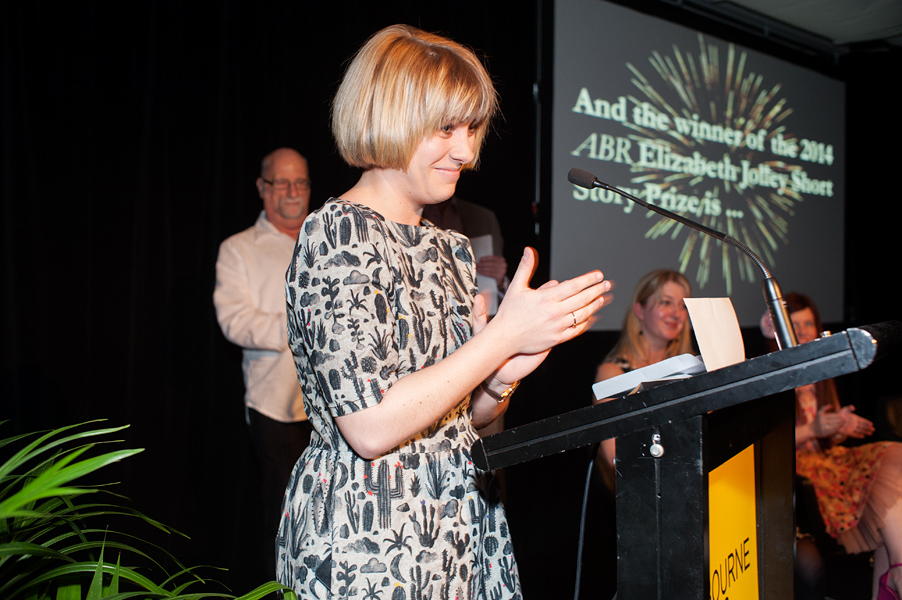 Jennifer Down at the announcement ceremony (photograph by Torunn Momtazi)
Jennifer Down at the announcement ceremony (photograph by Torunn Momtazi)
The Jolley Prize – one of Australia’s most lucrative and visible awards for short fiction – attracted about 1,200 entries. The judges – Patrick Allington, Cassandra Atherton, and Amy Baillieu – shortlisted three stories:
Jennifer Down – ‘Aokigahara’ First place: $5,000
Faith Oxenbridge – ‘Doisneau’s Kiss’ Second place: $2,000
Cate Kennedy – ‘The Art of Life’ Third place: $1,000
All three stories appear in full in our September Fiction issue.
The judges also highly commended two stories which we will publish in coming months: Gregory Day’s ‘The 900s Have Moved’ and ‘The Great Dying’ by American writer Larry O’Connor.
We will begin seeking entries in the sixth Jolley Prize in December 2014.
Readers’ Choice Award
To celebrate the Jolley Prize (and to find out which of the three shortlisted stories our readers like most), we are also presenting the Readers’ Choice Award. You have until October 20 to nominate your favourite story. To do so, simply email us with the title of the story you wish to nominate, along with your full name, address, and telephone number: This email address is being protected from spambots. You need JavaScript enabled to view it.
We have some special prizes for three lucky voters. One will receive twenty-five Text Classics, courtesy of Text Publishing. Two other voters will receive two-year complimentary subscriptions to ABR Online.
‘ABR has also contributed to elevating the status of the short story with its annual Jolley Prize.’ – Blanche Clark, Herald Sun
You may be interested in reading the shortlisted stories from previous years.
More information about all our past winners is available here.
We also recommend you read our list of Frequently Asked Questions before contacting us with a question about the Jolley Prize.
Entries for the 2015 Jolley Prize will officially open in December. Keep up to date with the latest developments on the prize, as well as other interesting ABR news and giveaways, by signing up to our newsletters.
2014 Porter Prize winner
Jessica L. Wilkinson wins 2014 Porter Prize
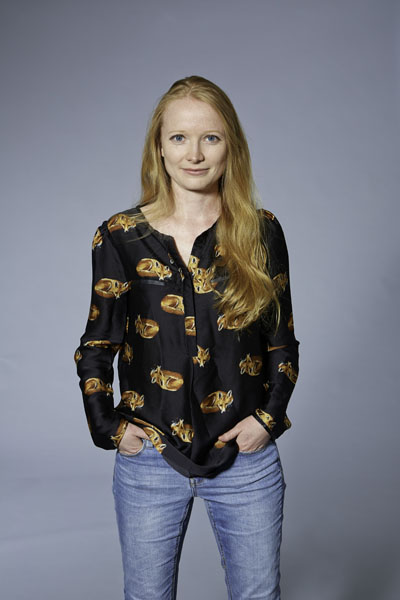 Australian Book Review is delighted to announce that Jessica L. Wilkinson has won the 2014 ABR Peter Porter Poetry Prize for her poem ‘Arrival Platform Humlet’. Jessica receives $4,000 for her winning poem, which was drawn from a field of just under 700 entries.
Australian Book Review is delighted to announce that Jessica L. Wilkinson has won the 2014 ABR Peter Porter Poetry Prize for her poem ‘Arrival Platform Humlet’. Jessica receives $4,000 for her winning poem, which was drawn from a field of just under 700 entries.
Elizabeth Allen, Nathan Curnow, and Paul Kane were also shortlisted, with each poet receiving $833 for their shortlisted poems (‘Absence’, ‘Scenes from the Olivet Discourse’ and ‘VFGA.’ respectively).
The judges were Lisa Gorton and Felicity Plunkett.
‘I am truly honoured that my poem ‘‘Arrival Platform Humlet’’ was recognised in this way and very privileged to be associated with the good name of Peter Porter.’
Jessica L. Wilkinson
Judges' report
‘Judging this prize was difficult, if rewarding, because the number of poems that demanded serious consideration. The judges longlisted more than thirty. After much consideration, we shortlisted four of them. They showed a thoughtful and inventive approach to the traditions that they were drawing on, and achieved a distinctive and memorable poetic vision.’
Lisa Gorton and Felicity Plunkett
ABR gratefully acknowledges the support of Morag Fraser AM
Past winners of the ABR Elizabeth Jolley Short Story Prize
ABR subscribers can read all previous prize-winning and shortlisted stories to the Jolley Prize. If you aren't a subscriber, digital subscriptions begin at only $10 per month. Click here to become an ABR subscriber.
2023
Rowan Heath: ‘The Mannequin’
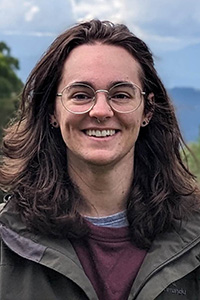 Rowan Heath was the winner of the 2023 ABR Elizabeth Jolley Short Story Prize for their story ‘The Mannequin’. They received $6,000. This year’s prize received 1,200 entries from thirty-eight different countries. Uzma Aslam Khan placed second and receives $4,000 for her story ‘Our Own Fantastic’ , and Winter Bel placed third and received $2,500 for her story ‘Black Wax’ The 2023 Jolley Prize was judged by Gregory Day, Jennifer Mills, and Maria Takolander. The shortlisted stories were published in the 2023 August issue.
Rowan Heath was the winner of the 2023 ABR Elizabeth Jolley Short Story Prize for their story ‘The Mannequin’. They received $6,000. This year’s prize received 1,200 entries from thirty-eight different countries. Uzma Aslam Khan placed second and receives $4,000 for her story ‘Our Own Fantastic’ , and Winter Bel placed third and received $2,500 for her story ‘Black Wax’ The 2023 Jolley Prize was judged by Gregory Day, Jennifer Mills, and Maria Takolander. The shortlisted stories were published in the 2023 August issue.
2022
Tracy Ellis: ‘Natural Wonder’
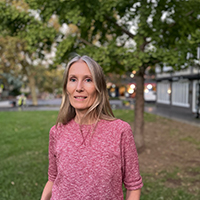 Tracy Ellis was the winner of the 2022 ABR Elizabeth Jolley Short Story Prize for her story ‘Natural Wonder’. She received $6,000. This year’s prize received 1,338 entries from thirty-six different countries. Nina Cullen placed second and received $4,000 for her story ‘Dog Park’, and C.J. Garrow placed third and received $2,500 for his story ‘Whale Fall’. The 2022 Jolley Prize was judged by Amy Baillieu, Melinda Harvey, and John Kinsella. Each of the shortlisted stories were published in the 2022 August issue.
Tracy Ellis was the winner of the 2022 ABR Elizabeth Jolley Short Story Prize for her story ‘Natural Wonder’. She received $6,000. This year’s prize received 1,338 entries from thirty-six different countries. Nina Cullen placed second and received $4,000 for her story ‘Dog Park’, and C.J. Garrow placed third and received $2,500 for his story ‘Whale Fall’. The 2022 Jolley Prize was judged by Amy Baillieu, Melinda Harvey, and John Kinsella. Each of the shortlisted stories were published in the 2022 August issue.
2021
Camilla Chaudhary: ‘The Enemy, Asyndeton’
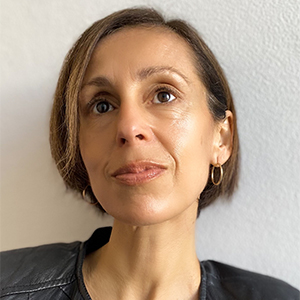 Camilla Chaudhary was the winner of the 2021 ABR Elizabeth Jolley Short Story Prize for their story ‘The Enemy, Asyndeton’. She received $6,000. This year’s prize received 1,428 entries from thirty-six different countries. Lauren Sarazen placed second and received $4,000 for her story ‘There Are No Stars Here, Either’, and John Richards placed third and received $2,500 for his story ‘A Fall from Grace’. The 2021 Jolley Prize was judged by Gregory Day, Melinda Harvey, and Elizabeth Tan. Each of the shortlisted stories are published in the 2021 August issue.
Camilla Chaudhary was the winner of the 2021 ABR Elizabeth Jolley Short Story Prize for their story ‘The Enemy, Asyndeton’. She received $6,000. This year’s prize received 1,428 entries from thirty-six different countries. Lauren Sarazen placed second and received $4,000 for her story ‘There Are No Stars Here, Either’, and John Richards placed third and received $2,500 for his story ‘A Fall from Grace’. The 2021 Jolley Prize was judged by Gregory Day, Melinda Harvey, and Elizabeth Tan. Each of the shortlisted stories are published in the 2021 August issue.
2020
Mykaela Saunders: ‘River Story’
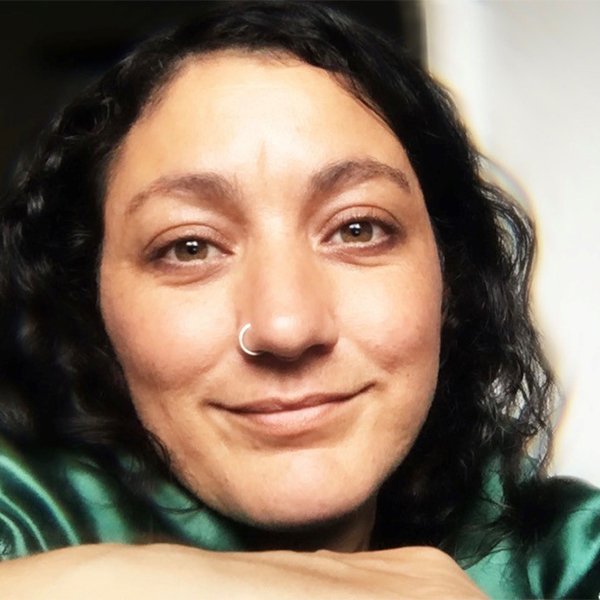 Mykaela Saunders was the winner of the 2020 ABR Elizabeth Jolley Short Story Prize for her story ‘River Story’. Mykaela Saunders received $6,000. C.J. Garrow was placed second for his story ‘Egg Timer’, and Simone Hollander was placed third for her story ‘Hieroglyph’. This year the Jolley Prize attracted almost 1,450 entries from 34 different countries. The judges were Gregory Day, Josephine Rowe, and Ellen van Neerven. The three shortlisted stories appear in our August Fiction issue.
Mykaela Saunders was the winner of the 2020 ABR Elizabeth Jolley Short Story Prize for her story ‘River Story’. Mykaela Saunders received $6,000. C.J. Garrow was placed second for his story ‘Egg Timer’, and Simone Hollander was placed third for her story ‘Hieroglyph’. This year the Jolley Prize attracted almost 1,450 entries from 34 different countries. The judges were Gregory Day, Josephine Rowe, and Ellen van Neerven. The three shortlisted stories appear in our August Fiction issue.
2019
Sonja Dechian: ‘The Point-Blank Murder’
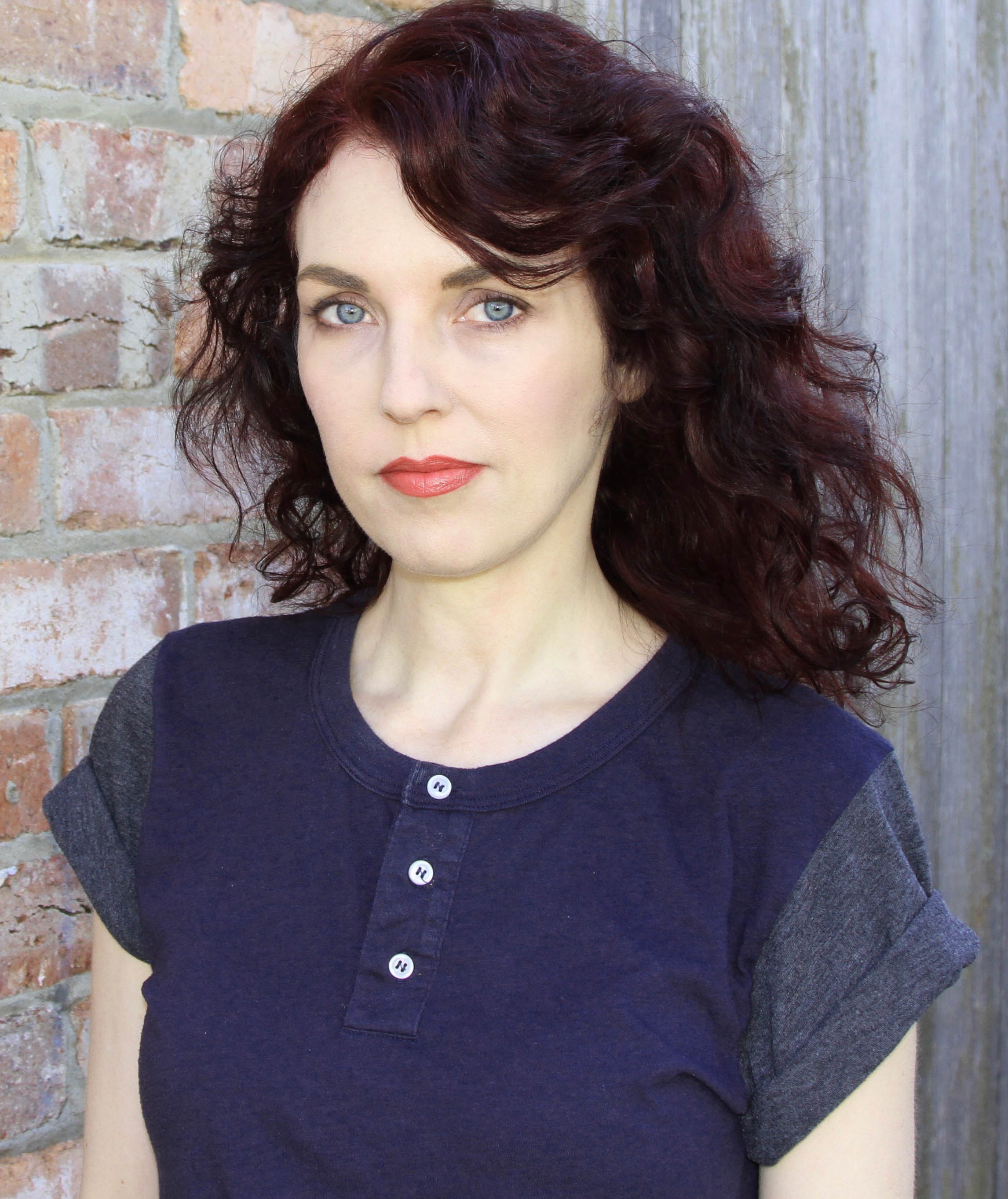 Sonja Dechian was the winner of the 2019 ABR Elizabeth Jolley Short Story Prize for her story ‘The Point-Blank Murder’. She received $5,000. Raaza Jamshed was placed second for her story ‘Miracle Windows’, and Morgan Nunan was placed third for his story ‘Rubble Boy’. The judges were Maxine Beneba Clarke, John Kinsella and Beejay Silcox. Subscribers can read all three stories in the 2019 Fiction issue.
Sonja Dechian was the winner of the 2019 ABR Elizabeth Jolley Short Story Prize for her story ‘The Point-Blank Murder’. She received $5,000. Raaza Jamshed was placed second for her story ‘Miracle Windows’, and Morgan Nunan was placed third for his story ‘Rubble Boy’. The judges were Maxine Beneba Clarke, John Kinsella and Beejay Silcox. Subscribers can read all three stories in the 2019 Fiction issue.
2018
Madelaine Lucas: ‘Ruins’
M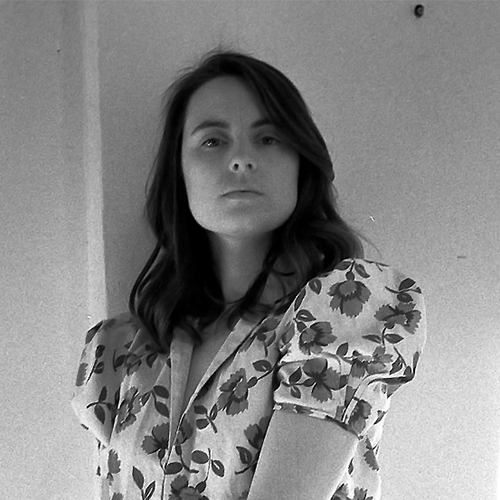 adelaine Lucas was named the winner of the 2018 ABR Elizabeth Jolley Short Story Prize for her story ‘Ruins’. Madelaine Lucas receives $7,000. Sharmini Aphrodite was placed second for her story ‘Between the Mountain and the Sea’ and Claire Aman placed third for her story 'Vasco'. The judges were Patrick Allington, Michelle Cahill, and Beejay Silcox. Subscribers can read all three shortlisted stories in the August 2018 Fiction issue. The judges also commended three other stories: ‘Joan Mercer’s Fertile Head’ by S.J. Finn, ‘Hardflip’ by Mirandi Riwoe, and ‘Break Character’ by Chloe Wilson.
adelaine Lucas was named the winner of the 2018 ABR Elizabeth Jolley Short Story Prize for her story ‘Ruins’. Madelaine Lucas receives $7,000. Sharmini Aphrodite was placed second for her story ‘Between the Mountain and the Sea’ and Claire Aman placed third for her story 'Vasco'. The judges were Patrick Allington, Michelle Cahill, and Beejay Silcox. Subscribers can read all three shortlisted stories in the August 2018 Fiction issue. The judges also commended three other stories: ‘Joan Mercer’s Fertile Head’ by S.J. Finn, ‘Hardflip’ by Mirandi Riwoe, and ‘Break Character’ by Chloe Wilson.
2017
Eliza Robertson: ‘Pheidippides’
 Eliza Robertson was named the winner of the 2017 ABR Elizabeth Jolley Short Story Prize for her story ‘Pheidippides’. Author David Malouf announced Eliza Robertson as the overall winner at a ceremony at Potts Point Bookshop, Sydney. She received $7,000 for her story. Dominic Amerena placed second for his story ‘The Leaching Layer’ and Lauren Aimee Curtis came third for her story ‘Butter’. The 2017 Jolley Prize was judged by ABR Deputy Editor Amy Baillieu, and authors Chris Flynn and Ellen van Neerven. Subscribers can read all three shortlisted stories in the August 2017 Fiction issue. The judges also commended three stories – ‘Contributory Negligence’ by Stevi-Lee Alver, ‘The Man I Should Have Married’ by Catherine Chidgey, and ‘The Fog Harvester’ by Marie Gethins.
Eliza Robertson was named the winner of the 2017 ABR Elizabeth Jolley Short Story Prize for her story ‘Pheidippides’. Author David Malouf announced Eliza Robertson as the overall winner at a ceremony at Potts Point Bookshop, Sydney. She received $7,000 for her story. Dominic Amerena placed second for his story ‘The Leaching Layer’ and Lauren Aimee Curtis came third for her story ‘Butter’. The 2017 Jolley Prize was judged by ABR Deputy Editor Amy Baillieu, and authors Chris Flynn and Ellen van Neerven. Subscribers can read all three shortlisted stories in the August 2017 Fiction issue. The judges also commended three stories – ‘Contributory Negligence’ by Stevi-Lee Alver, ‘The Man I Should Have Married’ by Catherine Chidgey, and ‘The Fog Harvester’ by Marie Gethins.
2016
Josephine Rowe: ‘Glisk’
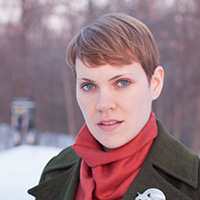 Josephine Rowe (Australia) was named the winner of the 2016 ABR Elizabeth Jolley Short Story Prize for her story ‘Glisk’ at a ceremony during the Melbourne Writers Festival. She received $7,000 for her story which was chosen from a field of nearly 1400 entries from thirty-eight countries. Anthony Lawrence (Australia) placed second for his story ‘Ash’ and Jonathan Tel (UK) came third for his story ‘The Water Calligrapher's Women’. The 2016 Jolley Prize was judged by ABR Deputy Editor Amy Baillieu, and authors Maxine Beneba Clarke and David Whish-Wilson. Subscribers can read all three shortlisted stories in the August 2016 Fiction issue. The judges also commended three stories – ‘Help Me Harden My Heart’ by Dom Amerena, ‘Window’ by Cate Kennedy, and ‘Slut Trouble’ by Beejay Silcox.
Josephine Rowe (Australia) was named the winner of the 2016 ABR Elizabeth Jolley Short Story Prize for her story ‘Glisk’ at a ceremony during the Melbourne Writers Festival. She received $7,000 for her story which was chosen from a field of nearly 1400 entries from thirty-eight countries. Anthony Lawrence (Australia) placed second for his story ‘Ash’ and Jonathan Tel (UK) came third for his story ‘The Water Calligrapher's Women’. The 2016 Jolley Prize was judged by ABR Deputy Editor Amy Baillieu, and authors Maxine Beneba Clarke and David Whish-Wilson. Subscribers can read all three shortlisted stories in the August 2016 Fiction issue. The judges also commended three stories – ‘Help Me Harden My Heart’ by Dom Amerena, ‘Window’ by Cate Kennedy, and ‘Slut Trouble’ by Beejay Silcox.
2015
Rob Magnuson Smith: ‘The Elector of Nossnearly’
 Rob Magnuson Smith (UK/US) was named the winner of the 2015 ABR Elizabeth Jolley Short Story Prize for his story ‘The Elector of Nossnearly’ by Steven Carroll at an event at the 2015 Brisbane Writers Festival. He received $5,000 for his story which was chosen from a field of over 1,200 entries sent in from thirty-one different countries. Michelle Cahill placed second for her story ‘Borges and I’ and Harriet McKnight (Australia) came third for her story ‘Crest’. The judges on this occasion were ABR Deputy Editor Amy Baillieu, poet and academic Sarah Holland-Batt and author Paddy O'Reilly. Subscribers can read all three shortlisted stories in the September 2015 Fiction issue.
Rob Magnuson Smith (UK/US) was named the winner of the 2015 ABR Elizabeth Jolley Short Story Prize for his story ‘The Elector of Nossnearly’ by Steven Carroll at an event at the 2015 Brisbane Writers Festival. He received $5,000 for his story which was chosen from a field of over 1,200 entries sent in from thirty-one different countries. Michelle Cahill placed second for her story ‘Borges and I’ and Harriet McKnight (Australia) came third for her story ‘Crest’. The judges on this occasion were ABR Deputy Editor Amy Baillieu, poet and academic Sarah Holland-Batt and author Paddy O'Reilly. Subscribers can read all three shortlisted stories in the September 2015 Fiction issue.
2014
Jennifer Down: ‘Aokigahara’
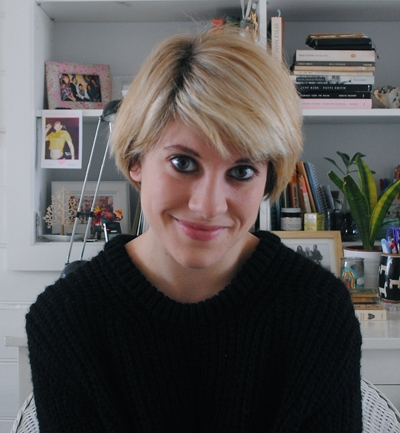 Jennifer Down was named the winner of the 2014 Jolley Prize by Ian Dickson at an event on Saturday 30 August during the Melbourne Writers Festival. She received a total of $5,000 for her winning short story, ‘Aokigahara’. Faith Oxenbridge (New Zealand) came second with her story ‘The Art of Life’, winning $2,000, and Cate Kennedy came third with ‘Doisneau's Kiss’, winning $1,000. The judges on this occasion were author–academics Patrick Allington and Cassandra Atherton and ABR Deputy Editor Amy Baillieu. This was the first year that the Jolley Prize was open to international entrants.
Jennifer Down was named the winner of the 2014 Jolley Prize by Ian Dickson at an event on Saturday 30 August during the Melbourne Writers Festival. She received a total of $5,000 for her winning short story, ‘Aokigahara’. Faith Oxenbridge (New Zealand) came second with her story ‘The Art of Life’, winning $2,000, and Cate Kennedy came third with ‘Doisneau's Kiss’, winning $1,000. The judges on this occasion were author–academics Patrick Allington and Cassandra Atherton and ABR Deputy Editor Amy Baillieu. This was the first year that the Jolley Prize was open to international entrants.
2013
Michelle Michau-Crawford: ‘Leaving Elvis’
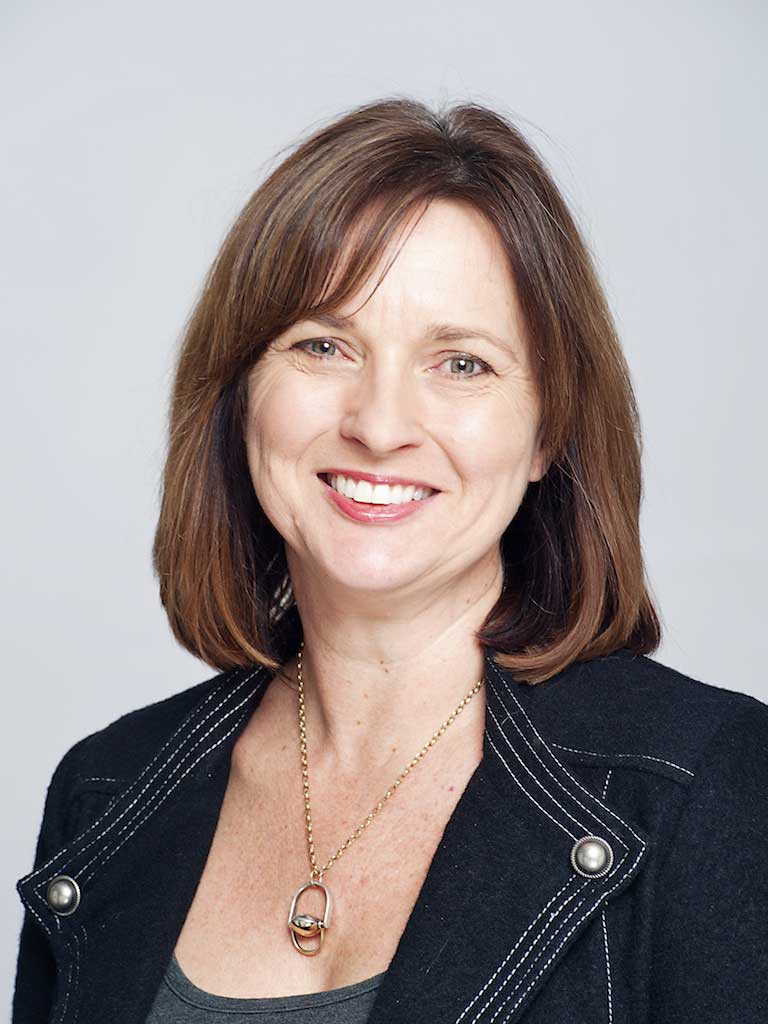 In October 2013 at a lively ceremony held at Gleebooks, David Malouf named Michelle Michau-Crawford’s ‘Leaving Elvis’ as the overall winner of the 2013 ABR Elizabeth Jolley Short Story Prize. The first prize is worth $5000. The judges – Tony Birch, Maria Takolander, and Terri-ann White – could not split the other two shortlisted stories, Rebekah Clarkson’s ‘The Five Truths of Manhood’ and Kim Mahood’s ‘The Accident’; each author receives $1500.
In October 2013 at a lively ceremony held at Gleebooks, David Malouf named Michelle Michau-Crawford’s ‘Leaving Elvis’ as the overall winner of the 2013 ABR Elizabeth Jolley Short Story Prize. The first prize is worth $5000. The judges – Tony Birch, Maria Takolander, and Terri-ann White – could not split the other two shortlisted stories, Rebekah Clarkson’s ‘The Five Truths of Manhood’ and Kim Mahood’s ‘The Accident’; each author receives $1500.
In 2013, ABR also held a Readers’ Choice Award. Readers were invited to choose their favourite out of the three shortlisted stories. They voted Rebekah Clarkson’s ‘The Five Truths of Manhood’ as their favourite.
2012
Sue Hurley: ‘Patterns in Nature’
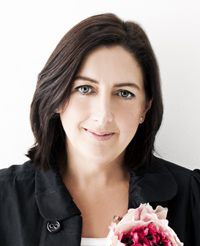 Sue Hurley won the 2012 ABR Elizabeth Jolley Short Story Prize for her story ‘Patterns in Nature’. Hurley received $5000 for her winning story, which was drawn from a large field of more than 1300 entries. Jack Cox was placed second with ‘Gorgeous Perambulator’, and Ngiare Elliot third with ‘Tended by Foxes’. They received $2000 and $1000, respectively. ABR and the judges congratulate all three authors for their outstanding contributions. The judges on this occasion were Peter Rose, Gregory Day (a winner of the 2011 Jolley Prize), and Maria Takolander (winner in 2010).
Sue Hurley won the 2012 ABR Elizabeth Jolley Short Story Prize for her story ‘Patterns in Nature’. Hurley received $5000 for her winning story, which was drawn from a large field of more than 1300 entries. Jack Cox was placed second with ‘Gorgeous Perambulator’, and Ngiare Elliot third with ‘Tended by Foxes’. They received $2000 and $1000, respectively. ABR and the judges congratulate all three authors for their outstanding contributions. The judges on this occasion were Peter Rose, Gregory Day (a winner of the 2011 Jolley Prize), and Maria Takolander (winner in 2010).
2011
Carrie Tiffany: ‘Before He Left the Family’
Gregory Day: ‘The Neighbour’s Beans’
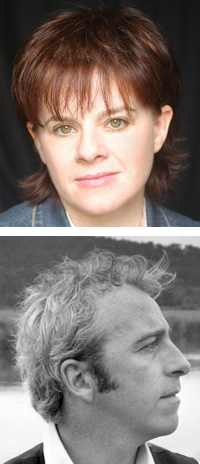 Carrie Tiffany (‘Before He Left the Family’) and Gregory Day (‘The Neighbour's Beans’) were the joint winners of the 2011 ABR Elizabeth Jolley Short Story Prize. They shared a first prize of $5000. Four stories were shortlisted, and Claire Aman (‘Milk Tray’) and Gaylene Carbis (‘What’s Richard Ford Got to Do With It?’) both received $1000. The judges on this occasion were Tony Birch (author of Blood), Mark Gomes (then-Deputy Editor of ABR), and Terri-ann White (Director of UWA Publishing). All four stories were published in the special Fiction-themed October 2011 issue of ABR.
Carrie Tiffany (‘Before He Left the Family’) and Gregory Day (‘The Neighbour's Beans’) were the joint winners of the 2011 ABR Elizabeth Jolley Short Story Prize. They shared a first prize of $5000. Four stories were shortlisted, and Claire Aman (‘Milk Tray’) and Gaylene Carbis (‘What’s Richard Ford Got to Do With It?’) both received $1000. The judges on this occasion were Tony Birch (author of Blood), Mark Gomes (then-Deputy Editor of ABR), and Terri-ann White (Director of UWA Publishing). All four stories were published in the special Fiction-themed October 2011 issue of ABR.
Four stories were commended in the 2011 Jolley Prize. They were: ‘Russell Drysdale's Trousers’ by Catherine Moffat, ‘Nitrogen’ by Meg Mundell, ‘Bad Luck’ by Rose Lane, and ‘A Body of Water’ by Else Fitzgerald.
2010
Maria Takolander: ‘A Roānkin Philosophy of Poetry’
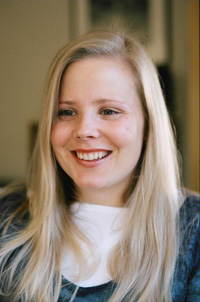 Maria Takolander won the inaugural Australian Book Review Short Story Competition. She received $2000. The judges – Chris Flynn and Peter Rose (Editor of ABR) – were impressed, and amused, by ‘A Roānkin Philosophy of Poetry’, an artful take on academic intrigue and absurdism. Maria Takolander’s story appeared in the December 2010–January 2011 issue of ABR. Placed second was Cate Kennedy for ‘Sleepers’ ($500 prize).
Maria Takolander won the inaugural Australian Book Review Short Story Competition. She received $2000. The judges – Chris Flynn and Peter Rose (Editor of ABR) – were impressed, and amused, by ‘A Roānkin Philosophy of Poetry’, an artful take on academic intrigue and absurdism. Maria Takolander’s story appeared in the December 2010–January 2011 issue of ABR. Placed second was Cate Kennedy for ‘Sleepers’ ($500 prize).
In 2010, ABR also held a Readers’ Choice Award. Readers were invited to choose their favourite out of the seven stories shortlisted. They voted Josephine Rowe's ‘Suitable for a Lampshade’ as their favourite, which was published in the February 2011 issue. The other shortlisted stories were: ‘The Virus - Travel Notes’ by David Cohen, ‘Angus's Playground’ by S.J. Finn, ‘Honey’ by Erin Gough, and ‘The Body’ by Joan Phillip.
Past winners of the Calibre Essay Prize
ABR subscribers can read all previous prize-winning and shortlisted essays to the Calibre Essay Prize. If you aren't a subscriber, digital subscriptions begin at only $10 per month. Click here to become an ABR subscriber.
2024
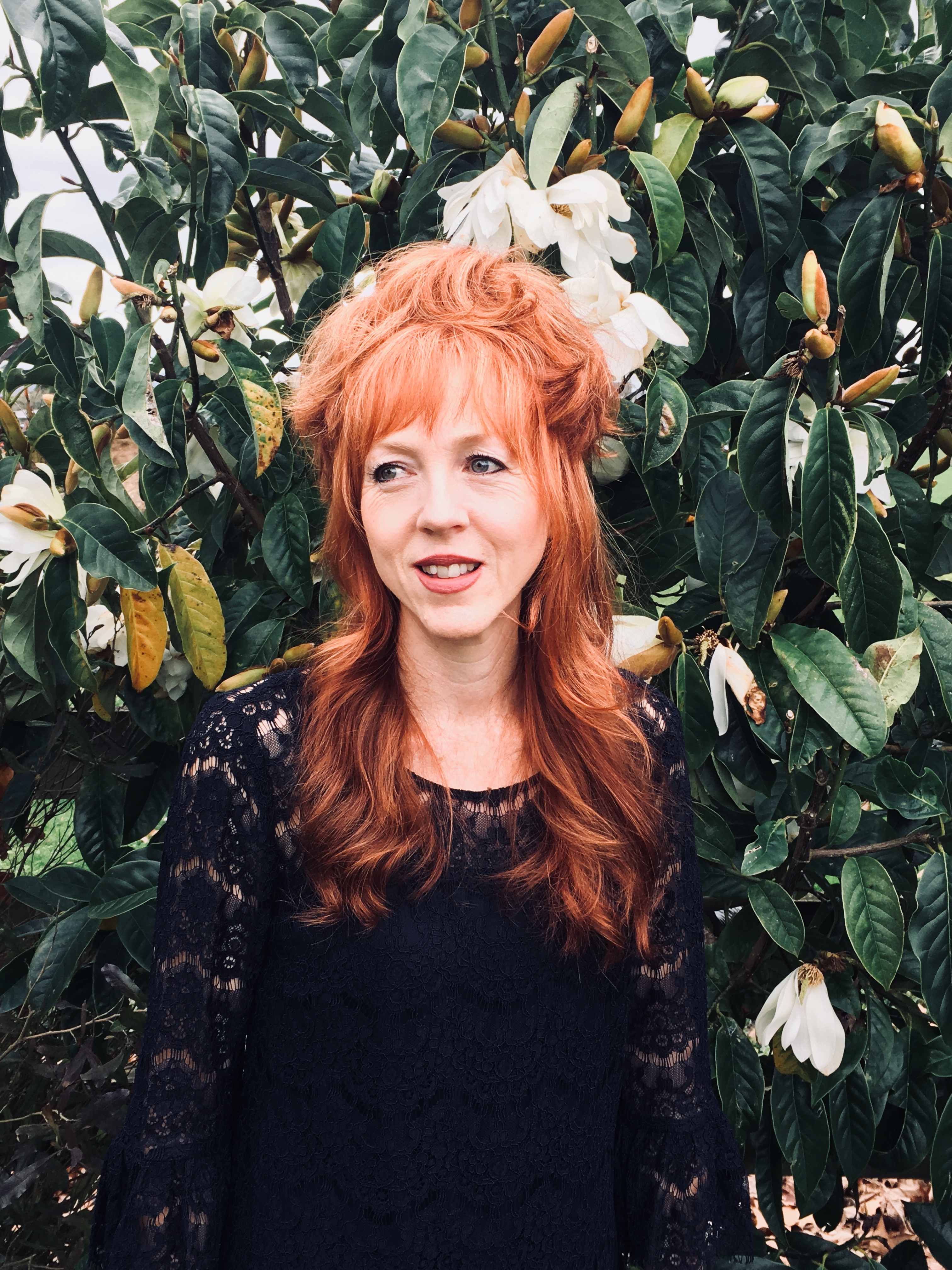 Tracey Slaughter ‘why your hair is long & your stories short’
Tracey Slaughter ‘why your hair is long & your stories short’
Tracey Slaughter won the eighteenth Calibre Essay Prize, worth a total of $10,000. Slaughter received $5,000 for her essay ‘why your hair is long & your stories short’, while the runner-up, Natasha Sholl received $3,000 for her essay, ‘Hold Your Nerve’, and Nicole Hasham received $2,000 for her essay ‘Bloodstone’.
The judges – Amy Baillieu, Shannon Burns, and Beejay Silcox – chose ‘why your hair is long & your stories short’ from a field of 567 entries from twenty-eight countries.
2023
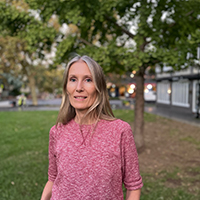 Tracy Ellis ‘Flow States’
Tracy Ellis ‘Flow States’
Writer and editor Tracy Ellis has won the seventeenth Calibre Essay Prize, worth a total of $7,500. Ellis receives $5,000 for her essay ‘Flow States’, while the runner-up, Bridget Vincent receives $2,500 for her essay, ‘Child Adjacent’.
The judges – Yves Rees (past winner of the Calibre Prize), Peter Rose (Editor of ABR), and Beejay Silcox (critic and artistic director of the Canberra Writers Festival) – chose ‘Flow States’ from a field of 397 entries. They came from twenty-four different countries – a bustling, global field.
 2022
2022
Simon Tedeschi: ‘This Woman My Grandmother’
Distinguished classical musician Simon Tedeschi has won the sixteenth Calibre Essay Prize, worth a total of $7,500. Tedeschi receives $5,000 for his essay ‘This Woman My Grandmother’, while the runner-up, Sarah Gory receives $2,500 for her essay, ‘Ghosts, Ghosts Everywhere’.
The judges – Declan Fry, Beejay Silcox and Peter Rose, Editor of ABR – selected a shortlist of twelve essays from a field of 569 entries from seventeen different countries.
2021
Theodore Ell: 'Façades of Lebanon'
 Theodore Ell is the winner of the 2021 Calibre Essay Prize, worth a total of $7,500, for his essay ‘Façades of Lebanon’. The judges wrote that the essay is ‘a gripping piece of reportage and a powerful meditation on the bonds of community in a time of turmoil and upheaval. It builds slowly, ominously, from the eerie quiet of Beirut during lockdown towards the catastrophic port explosion on 4 August 2020’. Ell receives $5,000.
Theodore Ell is the winner of the 2021 Calibre Essay Prize, worth a total of $7,500, for his essay ‘Façades of Lebanon’. The judges wrote that the essay is ‘a gripping piece of reportage and a powerful meditation on the bonds of community in a time of turmoil and upheaval. It builds slowly, ominously, from the eerie quiet of Beirut during lockdown towards the catastrophic port explosion on 4 August 2020’. Ell receives $5,000.
Anita Punton was named runner-up for ‘May Day’, a poignant memoir about piecing together her Olympic gymnast father’s life after his death. Anita receives $2,500.
ABR Editor Peter Rose judged the prize with Sheila Fitzpatrick and Billy Griffiths. They chose Theodore Ell's winning essay from 638 entries from twenty-eight different countries.
2020
Yves Rees: 'Reading the Mess Backwards'
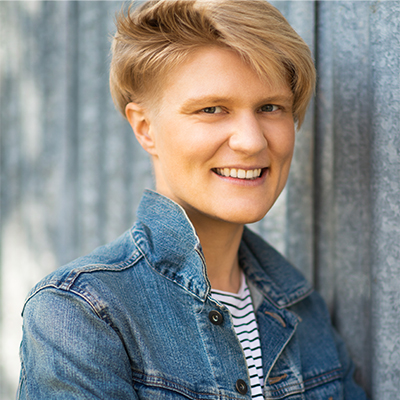 Yves Rees is the winner of the 2020 Calibre Essay Prize, worth a total of $7,500, for their essay ‘Reading the Mess Backwards’. As Rees writes, the essay is ‘a story of trans becoming that digs into the messiness of bodies, gender and identity’. Yves Rees receives $5,000.
Yves Rees is the winner of the 2020 Calibre Essay Prize, worth a total of $7,500, for their essay ‘Reading the Mess Backwards’. As Rees writes, the essay is ‘a story of trans becoming that digs into the messiness of bodies, gender and identity’. Yves Rees receives $5,000.
Kate Middleton was named runner-up for ‘The Dolorimeter’, a highly personal account of the author’s experience with illness. She receives $2,500.
ABR Editor Peter Rose judged the Prize with J.M. Coetzee (Nobel Laureate) and Lisa Gorton, (poet, novelist, and essayist). They chose Yves Rees's winning essay from almost 600 entries from twenty-nine different countries, a record field.
‘Reading the Mess Backwards’ appears in the June-July 2020 issue.
2019
Grace Karskens: 'Nah Doongh's Song'
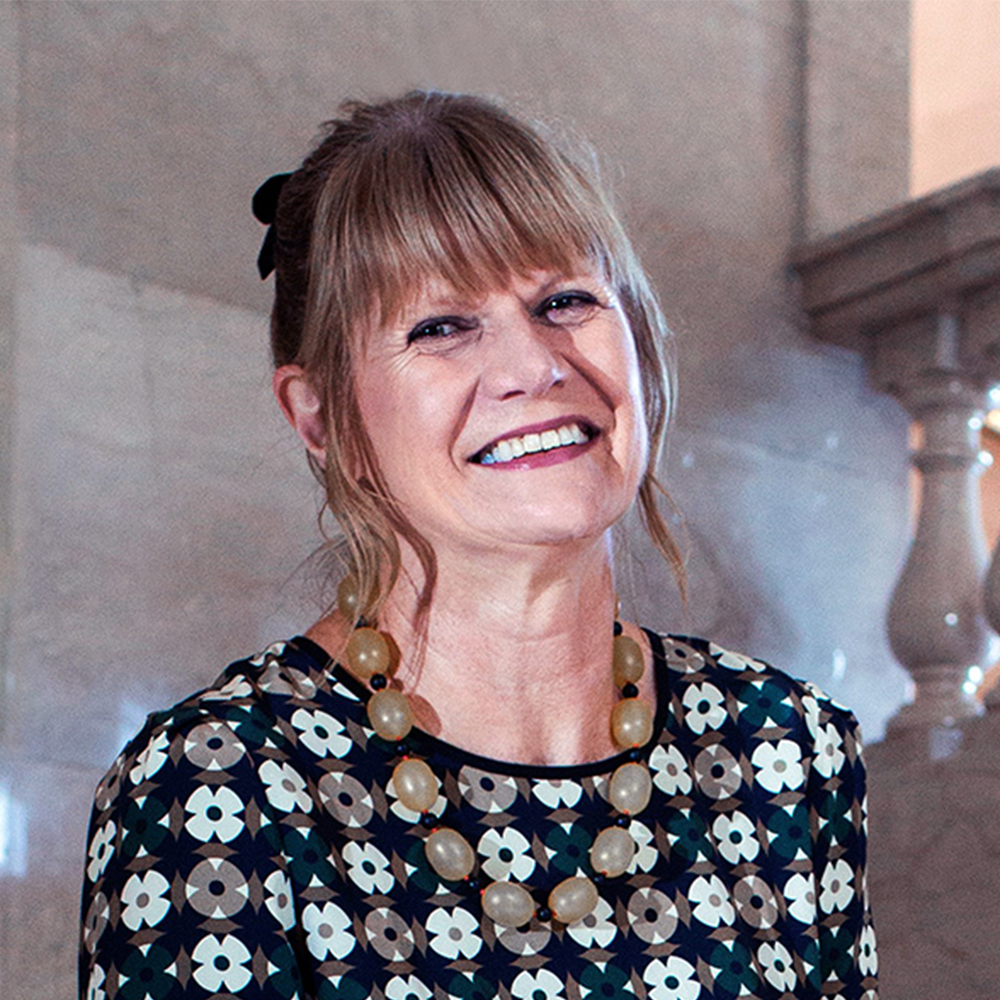 Grace Karskens is the winner of the thirteenth Calibre Essay Prize. The judges – J.M. Coetzee, author and winner of the Nobel Prize in Literature in 2003, Anna Funder, author of the international bestseller Stasiland and the Miles Franklin Award-winning novel All That I Am, and ABR Editor Peter Rose – selected Grace's essay ‘Nah Doongh's Song’ from a field of over 450 essays submitted from twenty-two countries. Grace receives $5,000, and her essay appears in the August Indigenous issue of Australian Book Review.
Grace Karskens is the winner of the thirteenth Calibre Essay Prize. The judges – J.M. Coetzee, author and winner of the Nobel Prize in Literature in 2003, Anna Funder, author of the international bestseller Stasiland and the Miles Franklin Award-winning novel All That I Am, and ABR Editor Peter Rose – selected Grace's essay ‘Nah Doongh's Song’ from a field of over 450 essays submitted from twenty-two countries. Grace receives $5,000, and her essay appears in the August Indigenous issue of Australian Book Review.
‘Nah Doongh's Song’ examines the unusually long life of one of the first Aboriginal children who grew up in conquered land. Born around 1800, Nah Doongh lived until 1898. Her losses, her peregrinations, her strong, dignified character are the subjects of this questing essay, in which the author states: ‘Biography is not a finite business; it’s a process, a journey. I have been researching, writing, and thinking about Nah Doongh … for over a decade now.’ The discoveries she makes along the way – the portrait she finally tracks down – are very stirring.
This winner of the second prize, worth $2,500, is Sarah Walker. Her essay, entitled ‘Floundering’, appears in the June–July 2019 issue.
2018
Lucas Grainger-Brown: 'We Three Hundred'
 Lucas Grainger-Brown is the winner of the twelfth Calibre Essay Prize. The judges – novelist Andrea Goldsmith, NewSouth Executive Publisher Phillipa McGuinness, and ABR Editor Peter Rose – chose Lucas’s essay ‘We Three Hundred’ from a field of over 200 essays submitted from thirteen countries. Lucas receives $5,000, and his essay appears in the April 400th issue of Australian Book Review.
Lucas Grainger-Brown is the winner of the twelfth Calibre Essay Prize. The judges – novelist Andrea Goldsmith, NewSouth Executive Publisher Phillipa McGuinness, and ABR Editor Peter Rose – chose Lucas’s essay ‘We Three Hundred’ from a field of over 200 essays submitted from thirteen countries. Lucas receives $5,000, and his essay appears in the April 400th issue of Australian Book Review.
‘We Three Hundred’ is a candid and unsentimental account of life as a cadet at the Australian Defence Force Academy in Canberra for a bookish, idealistic adolescent straight out of high school.
This winner of the second prize, worth $2,500, is Kirsten Tranter. Her essay, entitled ‘Once Again’, appears in the May 2018 issue.
2017
Michael Adams: 'Salt Blood'
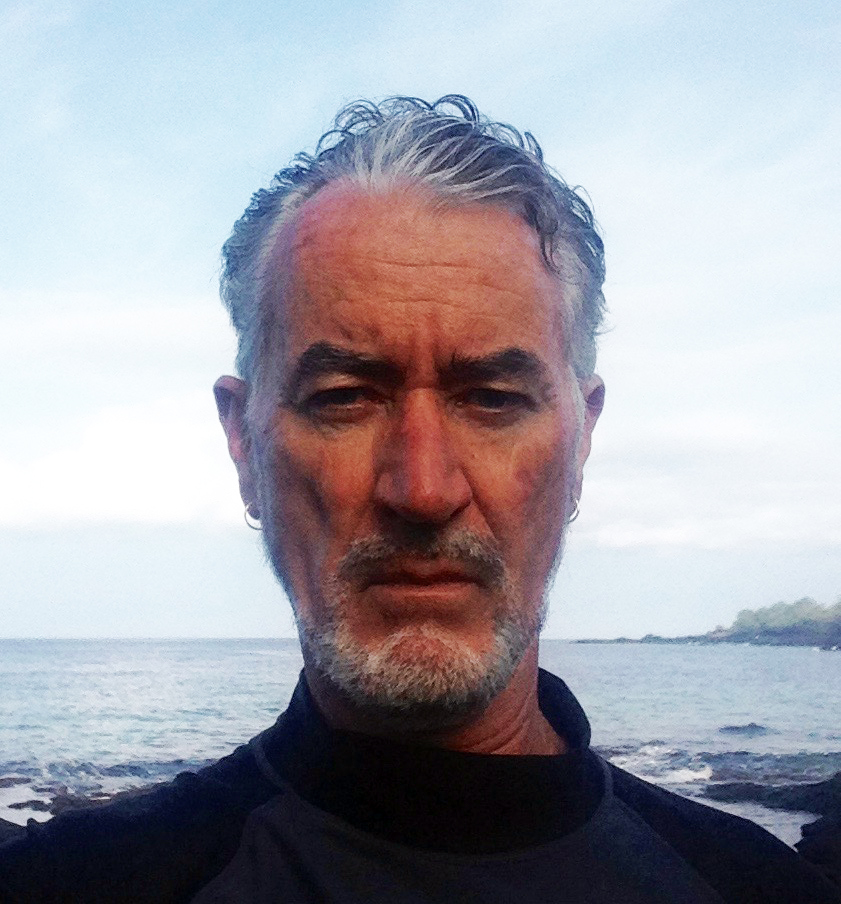 Michael Adams is the winner of the eleventh Calibre Essay Prize, worth $5,000. The judges – award-winning author and historian Sheila Fitzpatrick, ABR Editor Peter Rose, and Picador Publisher Geordie Williamson – chose Michael Adams’s essay ‘Salt Blood’ from a field of almost 200 essays submitted from fourteen countries.
Michael Adams is the winner of the eleventh Calibre Essay Prize, worth $5,000. The judges – award-winning author and historian Sheila Fitzpatrick, ABR Editor Peter Rose, and Picador Publisher Geordie Williamson – chose Michael Adams’s essay ‘Salt Blood’ from a field of almost 200 essays submitted from fourteen countries.
‘Salt Blood’ is a remarkable and highly original meditation on freediving and mortality.
This year ABR has added a second prize, worth $2,500. The winner is Darius Sepehri, a researcher and PhD student at the University of Sydney. His essay – entitled ‘To Speak of Sorrow’ (published in the August issue) – is about the many kinds of grief and their different expressions in writing and culture, as lament, testimony, or ritual.
Michael Adams's winning essay was published in the June-July 2017 issue of ABR.
2016
Michael Winkler: 'The Great Red Whale'
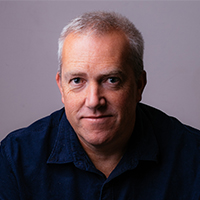 Michael Winkler was the winner of the tenth Calibre Prize, worth $5,000. The judges – Sophie Cunningham and ABR Editor and CEO Peter Rose – chose Winkler’s essay from a large field.
Michael Winkler was the winner of the tenth Calibre Prize, worth $5,000. The judges – Sophie Cunningham and ABR Editor and CEO Peter Rose – chose Winkler’s essay from a large field.
‘The Great Red Whale’ is an essay about fractures, overlaying the ruptures within the author's psyche with the fissure between Indigenous and non-Indigenous Australians, something he believes keeps us 'heartsore as a nation'. This excoriating yet remarkably subtle meditation is also a tribute to consolations: landscape, specifically the desert of Central Australia, and literature, notably Moby-Dick.
Michael Winkler’s winning essay was published in the June–July 2016 issue of ABR.
2015
Sophie Cunningham: 'Staying with the trouble'
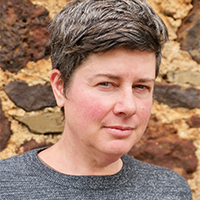 Sophie Cunningham was the winner of the ninth Calibre Prize, worth $5000. The judges – Delia Falconer and ABR Editor and CEO Peter Rose – chose Cunningham’s essay from a large field.
Sophie Cunningham was the winner of the ninth Calibre Prize, worth $5000. The judges – Delia Falconer and ABR Editor and CEO Peter Rose – chose Cunningham’s essay from a large field.
‘Staying with the trouble’ describes an epic walk up Broadway in New York, and others like it. The tone is self-deprecating, conversational, and ‘gloriously social’, but all sorts of themes arise along the way: Alzheimer’s, Horseshoe Crabs, history, writers, violence against women, racism, Selma, and climate change. It is a celebration of ‘randomness’, but also testifies to Sophie Cunningham’s belief in the importance of ‘staying with the trouble’.
Sophie Cunningham’s winning essay is published in the May 2015 issue of ABR
2014
Christine Piper: 'Unearthing the Past'
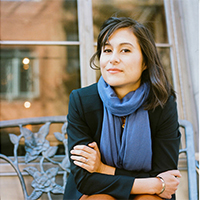 Christine Piper was the winner of the eighth Calibre Prize, worth $5,000. The judges – Morag Fraser and ABR Editor and CEO Peter Rose – chose Piper’s essay from a large field.
Christine Piper was the winner of the eighth Calibre Prize, worth $5,000. The judges – Morag Fraser and ABR Editor and CEO Peter Rose – chose Piper’s essay from a large field.
In her essay, ‘Unearthing the Past’, Christine Piper writes about biological weapons and experiments on living human beings in pre-war and wartime Japan. The remains of just some of the victims (the overall death toll is estimated at 250,000 to 300,000) were discovered in Tokyo twenty-five years ago. They have never been identified. The story takes Dr Piper to Japan, where she interviews key lawyers and activists who are seeking answers. We also meet the unspeakable Shiro Ishii, dubbed the Josef Mengele of Japan. Ishii, who masterminded Japan’s biological warfare program, escaped prosecution through an immunity deal with the United States. He died at home in 1959.
Christine Piper's winning essay is published in the April 2014 issue of ABR. The eighth Calibre Prize was supported by ABR Patron Mr Colin Golvan QC.
2013
Martin Thomas: '"Because it's your country": Bringing Back the Bones to West Arnhem Land'
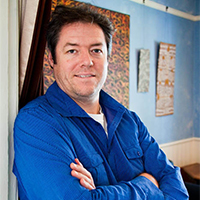 Martin Thomas was the winner of the seventh Calibre Prize, worth $5,000. The judges – Morag Fraser and Editor and CEO Peter Rose – chose his essay from a field of about 150 entries.
Martin Thomas was the winner of the seventh Calibre Prize, worth $5,000. The judges – Morag Fraser and Editor and CEO Peter Rose – chose his essay from a field of about 150 entries.
Dr Thomas’s essay, ‘“Because it’s your country”: Bringing Back the Bones to West Arnhem Land’ stood out in a strong field. The topic – the violation and restitution of Aboriginal remains – is a pressing one, and the author examines it with empathy and considerable knowledge of the personalities and sensitivities involved.
The essay was published in our April 2013 issue. The seventh Calibre Prize was supported by ABR Patron Mr Colin Golvan QC.
2012
Matt Rubinstein: 'Body and Soul: Copyright and Law Enforcement in the Age of the Electronic Book'
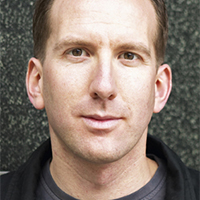 Australian Book Review and Copyright Agency awarded the sixth Calibre Prize for an Outstanding Essay to Matt Rubinstein who receives $7,000. The judges – Professor Ian Donaldson and ABR Editor Peter Rose – chose Rubinstein’s essay from a large field of entries. The second prize of $2,000 was awarded to Colin Nettelbeck, for his essay ‘Now They’ve Gone’.
Australian Book Review and Copyright Agency awarded the sixth Calibre Prize for an Outstanding Essay to Matt Rubinstein who receives $7,000. The judges – Professor Ian Donaldson and ABR Editor Peter Rose – chose Rubinstein’s essay from a large field of entries. The second prize of $2,000 was awarded to Colin Nettelbeck, for his essay ‘Now They’ve Gone’.
Matt Rubinstein's essay appeared in the September 2012 issue of ABR. The essay, entitled ‘Body and Soul: Copyright Law and Enforcement in the Age of the Electronic Book’, could not be more timely – a probing, meticulously researched survey of inherited notions of intellectual copyright and of new, accelerating challenges to such in the face of electronic publishing, the rapid swing to e-books, and ever more laissez-faire attitudes towards authorial rights.
2011
Dean Biron: 'The Death of the Writer' and Moira McKinnon: 'Who Killed Matilda?'
 Australian Book Review awarded the fifth Calibre Prize for an Outstanding Essay to Dean Biron and Moira McKinnon. Each essayist received $5,000. The judges were Jane Goodall (a winner of the Calibre Prize in 2009) and Peter Rose (Editor of ABR). Biron’s essay appeared in the May 2011 issue of ABR, and McKinnon’s in the July–August 2011 issue. Copyright Agency Limited supported the Prize again in this year.
Australian Book Review awarded the fifth Calibre Prize for an Outstanding Essay to Dean Biron and Moira McKinnon. Each essayist received $5,000. The judges were Jane Goodall (a winner of the Calibre Prize in 2009) and Peter Rose (Editor of ABR). Biron’s essay appeared in the May 2011 issue of ABR, and McKinnon’s in the July–August 2011 issue. Copyright Agency Limited supported the Prize again in this year.
Moira McKinnon is a public health physician who has worked in northern Australia and northern Canada. Her essay, ‘Who Killed Matilda?’, is based on her years as the main adviser on communicable diseases for the Australian Department of Health and Ageing.
Dean Biron lives in Brisbane and has a PhD from the University of New England. A former police detective, Dr Biron is currently employed as a senior analyst with the Queensland Children’s Commission. In his essay, ‘The Death of the Writer’ – more polemical than most Calibre entries – Dr Biron opposes a culture that inflames literary ambition and self-identification.
2010
Lorna Hallahan: 'On being Odd' and David Hansen: 'Seeing Truganini'
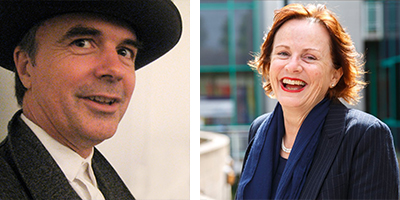 Lorna Hallahan and David Hansen were the joint winners of the 2010 Calibre Prize for an Outstanding Essay, the fourth to be presented by ABR, in association with Copyright Agency Limited’s Cultural Fund. Both authors received $5,000. The judges were critic James Ley and ABR Editor Peter Rose. Hallahan and Hansen’s essays appeared in the May 2010 issue of ABR.
Lorna Hallahan and David Hansen were the joint winners of the 2010 Calibre Prize for an Outstanding Essay, the fourth to be presented by ABR, in association with Copyright Agency Limited’s Cultural Fund. Both authors received $5,000. The judges were critic James Ley and ABR Editor Peter Rose. Hallahan and Hansen’s essays appeared in the May 2010 issue of ABR.
David Hansen’s essay ‘Death Dance’ was commended in the inaugural prize, in 2007. In ‘Seeing Truganini’, he has forthright things to say about the recent abortive sale of Benjamin Law’s busts of Truganini and Woureddy, and about the controversy surrounding the promulgation of historical artefacts. Dr Hansen deplores the stigma surrounding such works, and is critical of academic and curatorial timidity and silence.
In ‘On Being Odd’, Lorna Hallahan, who teaches at Flinders University, writes about a different form of stigmatisation: the marginalisation of the different, the disabled, the supposedly ‘odd’ or ‘grotesque’.
Click here to download the media release.
2009
Kevin Brophy: ‘“What’re yer looking at yer fuckin’ dog”: Violence and Fear in Žižek’s Post-political Neighbourhood’ and Jane Goodall: 'Footprints'
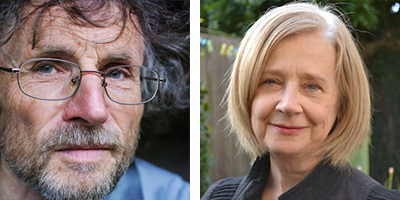 The 2009 Calibre Prize for an Outstanding Essay was shared by Kevin Brophy and Jane Goodall. The judges were Gay Bilson, Peter Rose (Editor of ABR), and Rebecca Starford (then-Deputy Editor of ABR). The Prize – a joint initiative of ABR and Copyright Agency Limited's Cultural Fund – was worth $10,000 in this year, and both authors received $5,000. Their essays were published in the April 2009 issue of ABR.
The 2009 Calibre Prize for an Outstanding Essay was shared by Kevin Brophy and Jane Goodall. The judges were Gay Bilson, Peter Rose (Editor of ABR), and Rebecca Starford (then-Deputy Editor of ABR). The Prize – a joint initiative of ABR and Copyright Agency Limited's Cultural Fund – was worth $10,000 in this year, and both authors received $5,000. Their essays were published in the April 2009 issue of ABR.
Jane Goodall’s theme, like her succinct title (‘Footprints’), has a kind of suaveness and urgency as she explores ideas about ecology and personal responsibility with reference to Kate Grenville, Mrs Aeneas Gunn, Nevil Shute, and a sublime short story by Leo Tolstoy.
Kevin Brophy’s title, ‘What’re yer lookin’ at yer fuckin’ dog?’, introduces an amazing tale of domestic mayhem and incivility in present-day inner Melbourne. Kevin Brophy’s tormentors may have been the neighbours from hell, but what a tale it is. To make sense of this five-year drama, Kevin Brophy draws on the Slovenian philosopher Slavoj Žižek and his theory that violence – ubiquitous violence, as he sees it – is the very basis of late capitalist ‘post-political’ life.
2008
Rachel Robertson: 'Reaching One Thousand' and Mark Tredinnick: 'A Storm and a Teacup'
 The 2008 Calibre Prize for an Outstanding Essay was won by Rachel Robertson and Mark Tredinnick. This was the first time that the Calibre Prize – a joint initiative of ABR and Copyright Agency Limited's Cultural Fund – was shared. The judges were Kerryn Goldsworthy (a former Editor of ABR), Paul Hetherington (Associate Professor of Writing at the University of Canberra), and Peter Rose (Editor of ABR). The Prize was worth $10,000 in this year. Their essays were published in the February 2008 issue of ABR.
The 2008 Calibre Prize for an Outstanding Essay was won by Rachel Robertson and Mark Tredinnick. This was the first time that the Calibre Prize – a joint initiative of ABR and Copyright Agency Limited's Cultural Fund – was shared. The judges were Kerryn Goldsworthy (a former Editor of ABR), Paul Hetherington (Associate Professor of Writing at the University of Canberra), and Peter Rose (Editor of ABR). The Prize was worth $10,000 in this year. Their essays were published in the February 2008 issue of ABR.
The title of Rachel Robertson’s essay is ‘Reaching One Thousand’. This is an impressively subtle study of autism and of its consequences for the child and for the parents alike. With dry wit it also introduces readers to an eccentric world of professional and amateur mathematicians. Ms Robertson’s adroit depiction of a family recognising and responding to autism is as impressive as her anxious care for her son ‘Ben’ (all names in this essay have been changed).
The title of Mark Tredinnick's essay is ‘A Storm and a Teacup’. It begins in a deluge, as it were: the heavy rains that flooded parts of southeast Australia in June 2007. These falls and the general inundation fail to alleviate Dr Tredinnick’s concerns about ‘the driest continent’ and the need for a profound reassessment of how many resources we all need individually to live equably and sustainably. Tea and its harmonising ceremonies and literature provide the key in this elegant, succinct essay, which also deals with the literary life in the twenty-first century.
2007
Elisabeth Holdsworth: 'An die Nachgeborenen: For Those Who Come After'
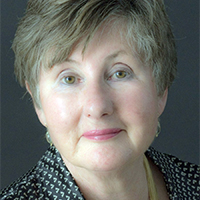 Elisabeth Holdsworth was the winner of the inaugural Calibre Prize for an Outstanding Essay, a joint initiative of Australian Book Review (ABR) and Copyright Agency Limited's Cultural Fund. She received $10,000. Her essay was published in the February 2007 issue of ABR. The judges were Peter Rose (Editor of ABR), Kerryn Goldsworthy (a former Editor of ABR), and Imre Salusinszky (Editor of The Oxford Book of Australian Essays, 1997).
Elisabeth Holdsworth was the winner of the inaugural Calibre Prize for an Outstanding Essay, a joint initiative of Australian Book Review (ABR) and Copyright Agency Limited's Cultural Fund. She received $10,000. Her essay was published in the February 2007 issue of ABR. The judges were Peter Rose (Editor of ABR), Kerryn Goldsworthy (a former Editor of ABR), and Imre Salusinszky (Editor of The Oxford Book of Australian Essays, 1997).
The title of her stirring and luminous essay is ‘An die Nachgeborenen: For Those Who Come After’, from the poem of the same name by Bertolt Brecht. Ms Holdsworth was born in the Netherlands soon after World War II. Her essay describes her recent return to the Netherlands and her family’s vicissitudes and suffering during the war.
'I would like to thank everyone involved in the Calibre Prize. I am deeply honoured to be the inaugural winner. That this essay has gained some attention in this year celebrating four hundred years of Dutch-Australian contact is fantastic.' – Elisabeth Holdsworth.
Elisabeth Holdsworth's second essay, 'Missing from my own life' was published in the October 2008 issue of ABR.
ABR Prizes
Calibre Essay Prize
Australia’s leading award for an original essay is intended to foster new insights into culture, society, and the human condition. All non-fiction subjects are eligible for submission. The prize is worth a total of $10,000, and is supported by Peter McLennan and Mary-Ruth Sindrey.
Peter Porter Poetry Prize
ABR’s prestigious international poetry prize is named in honour of the late Australian poet Peter Porter. The prize is worth a total of AU$10,000. The Peter Porter Poetry is funded by the ABR Patrons, including support in memory of Kate Boyce.
ABR Elizabeth Jolley Short Story Prize
ABR’s annual international short fiction prize is named in honour of the late author Elizabeth Jolley, and is worth a total of AU$12,500. The Prize is supported by ABR Patron Ian Dickson.
Past ABR Fellowships
ABR Behrouz Boochani Fellowship
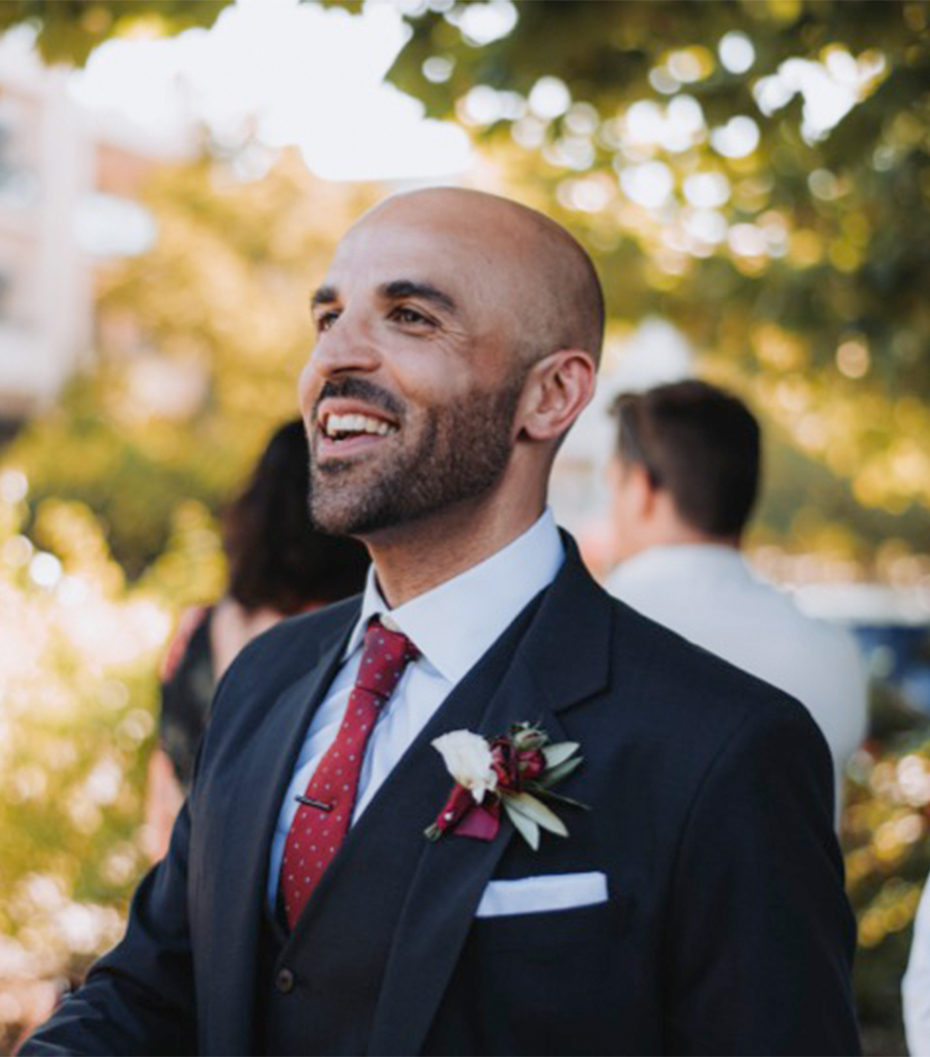 Hessom Razavi was the recipient of the 2020 ABR Behrouz Boochani Fellowship. The Fellowship, worth $10,000, honoured the artistry, courage, and moral leadership of Behrouz Boochani, the award-winning author of No Friend But the Mountains (2018). Dr Razavi made a significant contribution to the magazine in 2020 with a series of three substantial articles on refugees, statelessness, and human rights.
Hessom Razavi was the recipient of the 2020 ABR Behrouz Boochani Fellowship. The Fellowship, worth $10,000, honoured the artistry, courage, and moral leadership of Behrouz Boochani, the award-winning author of No Friend But the Mountains (2018). Dr Razavi made a significant contribution to the magazine in 2020 with a series of three substantial articles on refugees, statelessness, and human rights.
ABR Patrons Fellowship
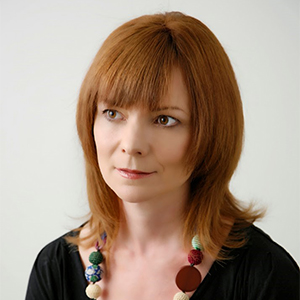 Felicity Plunkett is the recipient of the 2019 ABR Patrons’ Fellowship, worth $10,000. Felicity has been a frequent contributor to the magazine since 2010 and was a past Fellow (2015). A poet, critic, teacher, and editor, Felicity was chosen from a large field and will contribute several articles to ABR over the course of the year.
Felicity Plunkett is the recipient of the 2019 ABR Patrons’ Fellowship, worth $10,000. Felicity has been a frequent contributor to the magazine since 2010 and was a past Fellow (2015). A poet, critic, teacher, and editor, Felicity was chosen from a large field and will contribute several articles to ABR over the course of the year.
ABR Fortieth Birthday Fellowship
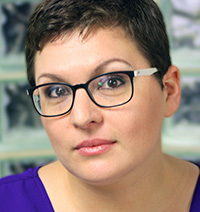 Beejay Silcox is the recipient of the ABR Fortieth Birthday Fellowship worth $10,000. Beejay, who first wrote for us in 2016, has quickly become a regular in our pages, and elsewhere. She will contribute several articles and review essays in 2018, commencing with a survey of magazine culture in our 400th issue (April).
Beejay Silcox is the recipient of the ABR Fortieth Birthday Fellowship worth $10,000. Beejay, who first wrote for us in 2016, has quickly become a regular in our pages, and elsewhere. She will contribute several articles and review essays in 2018, commencing with a survey of magazine culture in our 400th issue (April).
ABR Gender Fellowship
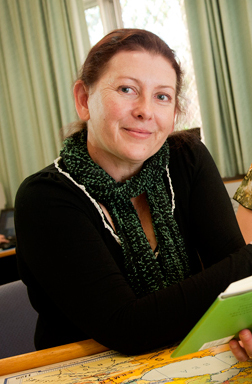
Author and academic Marguerite Johnson is the 2017 ABR Gender Fellow. Her Fellowship essay ‘Picnic at Hanging Rock fifty years on’ looks at Joan Lindsay's 1967 novel Picnic at Hanging Rock, drawing on studies of gender and sexuality, Australian art, and Classics. The ABR Gender Fellowship is worth $7,500. Her essay appeared in the December 2017 issue of ABR. The Fellowship is funded by ABR Patron Emeritus Professor Anne Edwards.
ABR RAFT Fellowship
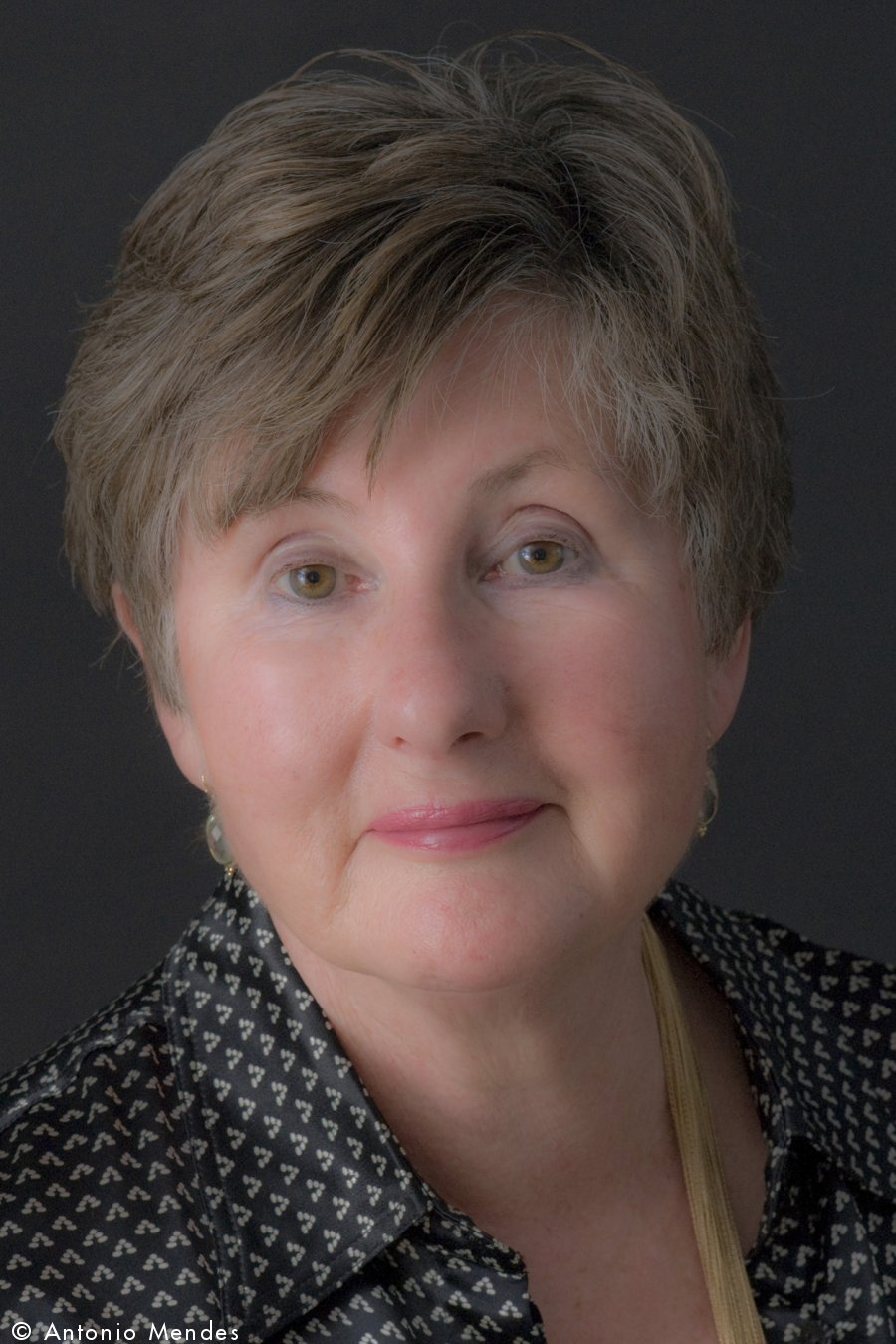 Elisabeth Holdsworth is the 2017 ABR RAFT Fellow. Her essay 'If This Is a Jew' explores the nature of Progressive Judaism as practised in Australia, Israel, and the United States. Her essay appeared in the November 2017 Arts issue of ABR. The Fellowship is supported by the Religious Advancement Foundation Trust.
Elisabeth Holdsworth is the 2017 ABR RAFT Fellow. Her essay 'If This Is a Jew' explores the nature of Progressive Judaism as practised in Australia, Israel, and the United States. Her essay appeared in the November 2017 Arts issue of ABR. The Fellowship is supported by the Religious Advancement Foundation Trust.
ABR Eucalypt Fellowship
 Adelaide novelist and essayist Stephen Orr is the 2017 ABR Eucalypt Fellow. Stephen Orr’s essay 'Ambassadors from Another Time' explores the way the eucalypt 'flourishes from Tasmania to the Philippines, how it has colonised poor soils, provided food for the First Australians, images for May Gibbs’s garden sketches, but also informed a sense of isolation about lost children, and terror in the burnt-out cars left in the wake of Ash Friday.' Stephen Orr's Fellowship essay appeared in the 2017 October Environment issue of ABR. The Eucalypt Fellowship is supported by Eucalypt Australia and the ABR Patrons.
Adelaide novelist and essayist Stephen Orr is the 2017 ABR Eucalypt Fellow. Stephen Orr’s essay 'Ambassadors from Another Time' explores the way the eucalypt 'flourishes from Tasmania to the Philippines, how it has colonised poor soils, provided food for the First Australians, images for May Gibbs’s garden sketches, but also informed a sense of isolation about lost children, and terror in the burnt-out cars left in the wake of Ash Friday.' Stephen Orr's Fellowship essay appeared in the 2017 October Environment issue of ABR. The Eucalypt Fellowship is supported by Eucalypt Australia and the ABR Patrons.
ABR Patrons' Fellowship
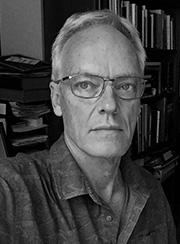 Philip Jones is the ABR Patrons’ Fellow. His essay titled ‘Beyond Songlines’ is revisionist article of considerable importance examining the Bruce Chatwin phenomenon thirty years on – Jones is widely regarded as one of the country’s leading ethnographers and anthropologists. The essay was published in the September 2017 issue of Australian Book Review. We are able to fund this Fellowship with support from our many supporters. We thank all our Patrons.
Philip Jones is the ABR Patrons’ Fellow. His essay titled ‘Beyond Songlines’ is revisionist article of considerable importance examining the Bruce Chatwin phenomenon thirty years on – Jones is widely regarded as one of the country’s leading ethnographers and anthropologists. The essay was published in the September 2017 issue of Australian Book Review. We are able to fund this Fellowship with support from our many supporters. We thank all our Patrons.
ABR RAFT Fellowship
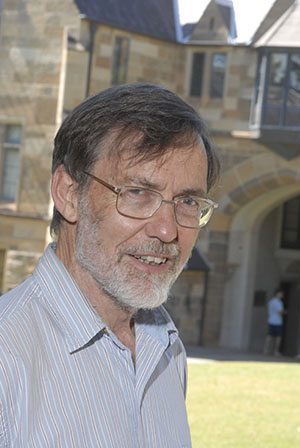 Alan Atkinson, one of Australia's most distinguished and lauded historians, is the recipient of the inaugural ABR RAFT Fellowship. The Fellowship is funded by the Religious Advancement Foundation Trust and is intended to consider the role and significance of religion in society and culture. Alan Atkinson's essay, 'How Do We Live With Ourselves? The Australian National Conscience', was published in the September 2016 issue of Australian Book Review.
Alan Atkinson, one of Australia's most distinguished and lauded historians, is the recipient of the inaugural ABR RAFT Fellowship. The Fellowship is funded by the Religious Advancement Foundation Trust and is intended to consider the role and significance of religion in society and culture. Alan Atkinson's essay, 'How Do We Live With Ourselves? The Australian National Conscience', was published in the September 2016 issue of Australian Book Review.
ABR Laureate's Fellowship
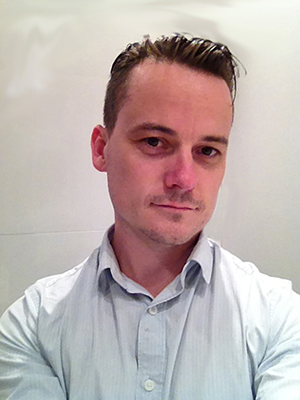 Sydney poet Michael Aiken was the inaugural ABR Laureate's Fellow, chosen by ABR Laureate David Malouf. Michael Aiken used his Fellowship to write an extended narrative poem in the epic tradition. Entitled 'Satan Repentant', this is a book-length poem about revenge, resentment, and remorse. ABR published a long extract from the poem in its August 2016 issue. Michael Aiken's first collection, A Vicious Example (Grand Parade 2014), was shortlisted for the Kenneth Slessor Prize. His poetry and prose have appeared in journals in Australia and overseas. This Fellowship is possible because of the generosity of ABR Patrons.
Sydney poet Michael Aiken was the inaugural ABR Laureate's Fellow, chosen by ABR Laureate David Malouf. Michael Aiken used his Fellowship to write an extended narrative poem in the epic tradition. Entitled 'Satan Repentant', this is a book-length poem about revenge, resentment, and remorse. ABR published a long extract from the poem in its August 2016 issue. Michael Aiken's first collection, A Vicious Example (Grand Parade 2014), was shortlisted for the Kenneth Slessor Prize. His poetry and prose have appeared in journals in Australia and overseas. This Fellowship is possible because of the generosity of ABR Patrons.
ABR Dahl Trust Fellowship
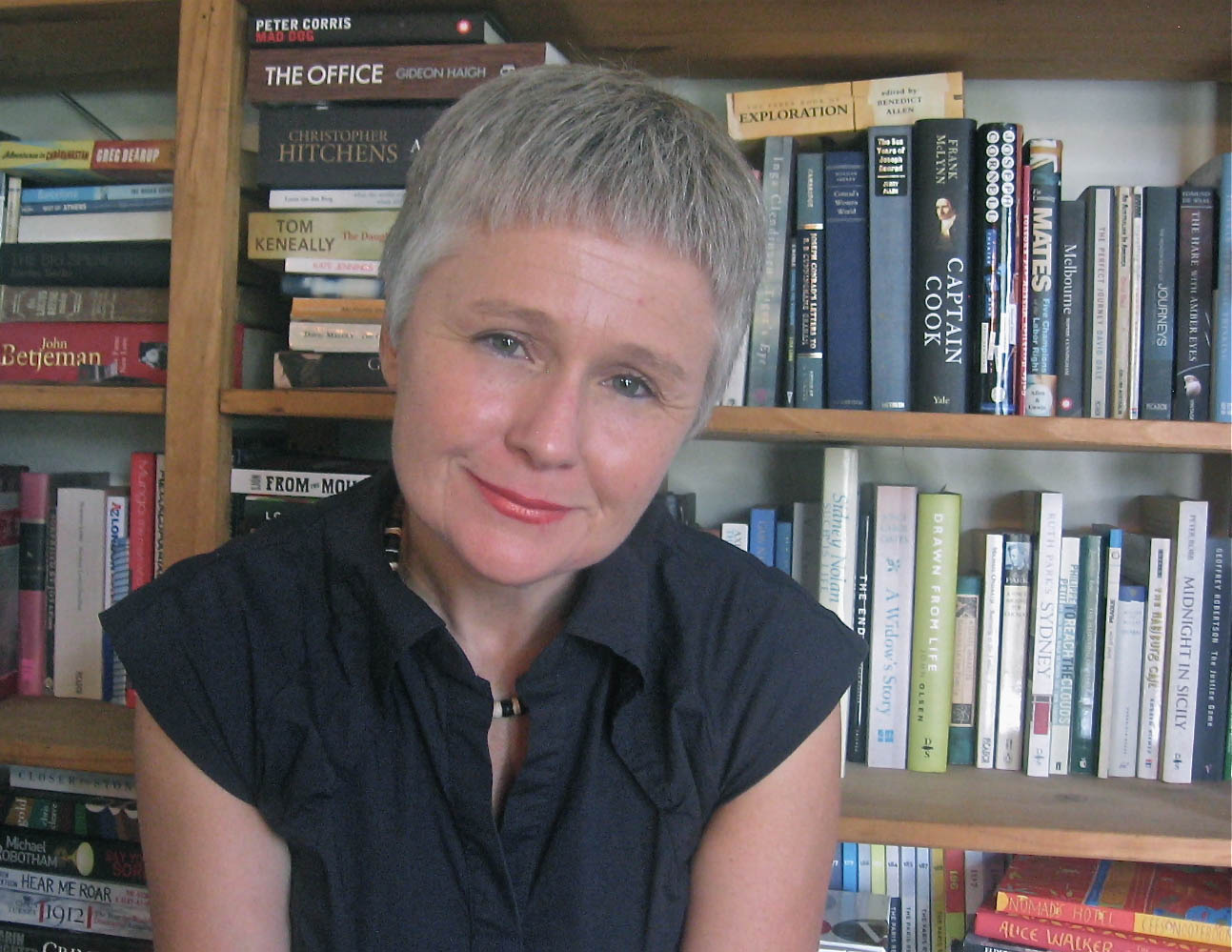 Award-winning author Ashley Hay is the 2015 ABR Dahl Trust Fellow. Her long article, ‘The Forest at the Edge of Time’ examines ‘what our mongrel trees tell us about our past, the present, and the future’. It appears in this year’s Environment issue. Ashley Hay has published several books, including Gum: The Story of Eucalypts and Their Champions (2002), The Railwayman’s Wife (2013), which won the Colin Roderick Award, and (as editor) Best Australian Science Writing 2014. This is the second ABR Fellowship to be funded by the Bjarne K. Dahl Trust.
Award-winning author Ashley Hay is the 2015 ABR Dahl Trust Fellow. Her long article, ‘The Forest at the Edge of Time’ examines ‘what our mongrel trees tell us about our past, the present, and the future’. It appears in this year’s Environment issue. Ashley Hay has published several books, including Gum: The Story of Eucalypts and Their Champions (2002), The Railwayman’s Wife (2013), which won the Colin Roderick Award, and (as editor) Best Australian Science Writing 2014. This is the second ABR Fellowship to be funded by the Bjarne K. Dahl Trust.
ABR Patrons’ Fellowship
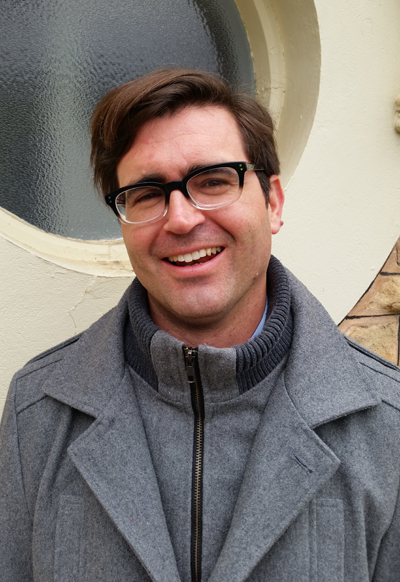
The third ABR Patrons’ Fellowship was for a substantial article on any topic. Shannon Burns was appointed in November 2014. His article, entitled ‘The Scientist of his own experience: A profile of Gerald Murnane’, in the August 2015 issue, combines investigative journalism, critical analysis, and literary and historical research to profile award-winning novelist Gerald Murnane.
ABR Ian Potter Foundation Fellowship
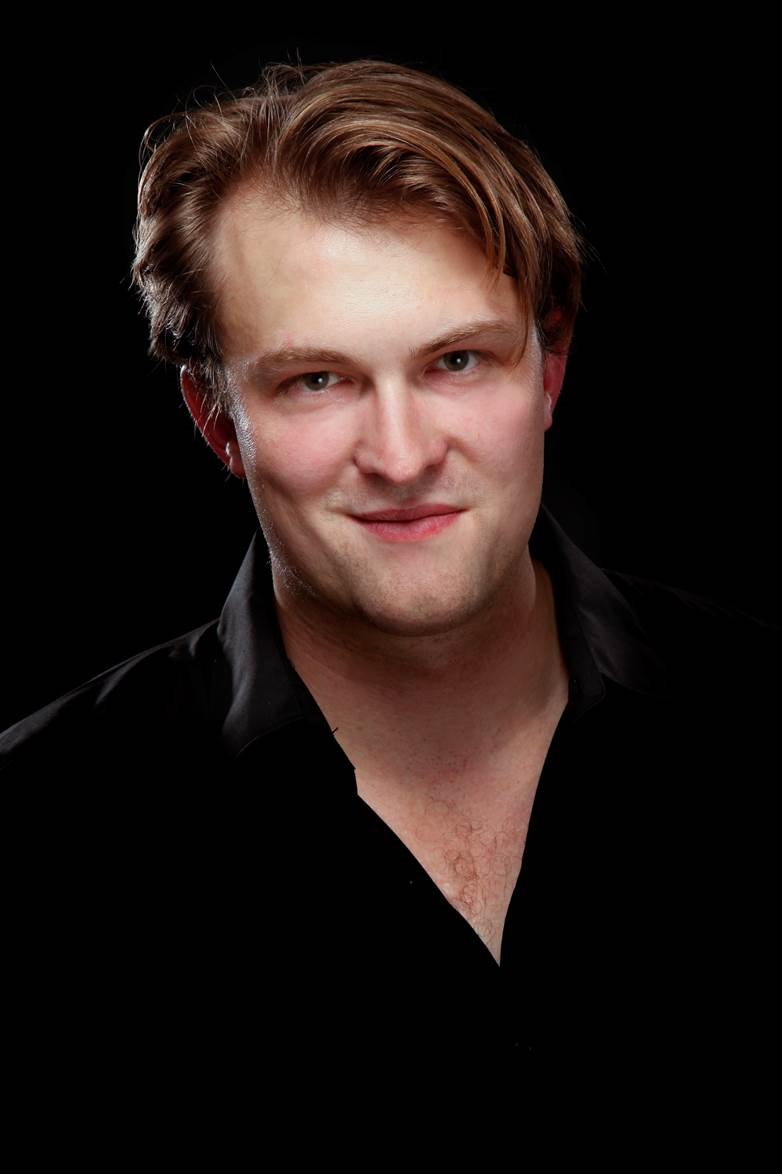
The third ABR Ian Potter Foundation Fellowship was for a substantial article on any topic. James McNamara was appointed in November 2014. His essay, entitled ‘The Golden Age of Television?’, considers the ascendancy of television drama and its cultural significance. The article was the main feature in our inaugural Film and Television issue in April 2015.
ABR Dahl Trust Fellowship
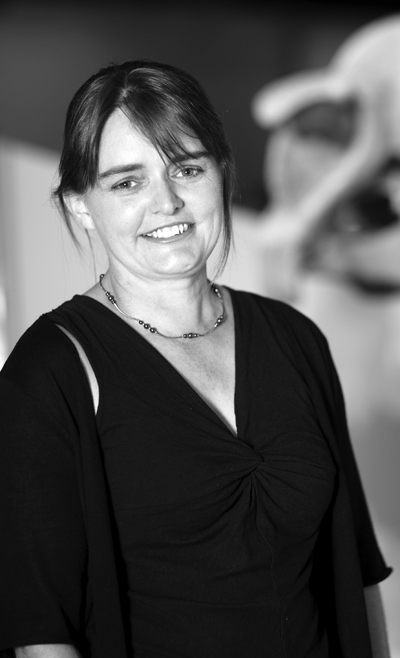
Australian Book Review congratulates the recipient of the ABR Dahl Trust Fellowship, Danielle Clode, for her essay: ‘Seeing the Wood for the Trees’. Clode’s essay examines the representation of eucalypt forests in Australian culture and the implications this has for debates over forest resources. This is the first ABR Fellowship to be funded by the Bjarne K. Dahl Trust.
ABR Ian Potter Foundation Fellowship
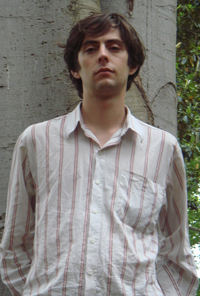 The second ABR Ian Potter Foundation Fellowship was for a substantial article on any aspect of the performing arts. Andrew Fuhrmann was appointed in May 2013 and his article ‘Patrick White: A theatre of his own’ was published in our November 2013 issue. In it Fuhrmann examines the plays of Patrick White and his influence on contemporary theatre.
The second ABR Ian Potter Foundation Fellowship was for a substantial article on any aspect of the performing arts. Andrew Fuhrmann was appointed in May 2013 and his article ‘Patrick White: A theatre of his own’ was published in our November 2013 issue. In it Fuhrmann examines the plays of Patrick White and his influence on contemporary theatre.
ABR George Hicks Foundation Fellowship
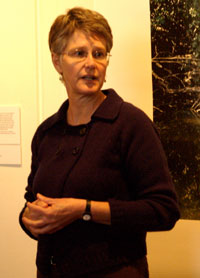 The ABR George Hicks Foundation Fellowship was for a substantial article with a focus on the visual arts. Helen Ennis was the seventh fellow and her article (‘Olive Cotton at Spring Forest’) was the main feature of the 2013 July-August Art issue. In her article Ennis offers a fascinating reading of the great modernist photographer's second marriage and gradual re-emergence as a photographer in the latter decades of her life.
The ABR George Hicks Foundation Fellowship was for a substantial article with a focus on the visual arts. Helen Ennis was the seventh fellow and her article (‘Olive Cotton at Spring Forest’) was the main feature of the 2013 July-August Art issue. In her article Ennis offers a fascinating reading of the great modernist photographer's second marriage and gradual re-emergence as a photographer in the latter decades of her life.
ABR Ian Potter Foundation Fellowship
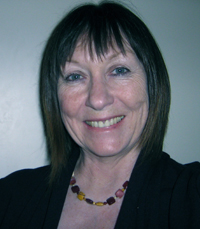 The ABR Ian Potter Foundation Fellowship was for a substantial article with a literary studies focus. Kerryn Goldsworthy was the sixth Fellow. Goldsworthy is a former Editor of ABR and one of Australia’s most prolific and respected critics. In her article, titled ‘Everyone’s a Critic’, Goldsworthy examines the current state of book reviewing in Australia, online and off. ABR published the article in May 2013.
The ABR Ian Potter Foundation Fellowship was for a substantial article with a literary studies focus. Kerryn Goldsworthy was the sixth Fellow. Goldsworthy is a former Editor of ABR and one of Australia’s most prolific and respected critics. In her article, titled ‘Everyone’s a Critic’, Goldsworthy examines the current state of book reviewing in Australia, online and off. ABR published the article in May 2013.
ABR Patrons’ Fellowship
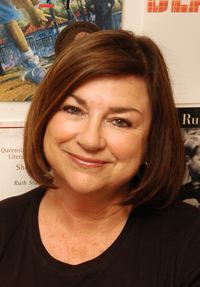 The second ABR Patrons’ Fellowship was for a substantial article with a film, media, or TV focus. Ruth Starke was the fifth Fellow. Starke’s project, titled ‘Media Don’, focuses on the resilient and charismatic South Australian politician Don Dunstan, a long-serving premier who skilfully used the media to fashion his persona and perpetuate his influence, but who in the end was brought down by it. Starke, who used the extensive resources of the Don Dunstan Collection held by the Flinders University Library Special Collections, also sheds light on the private man. Her article is published in the March 2013 issue of ABR.
The second ABR Patrons’ Fellowship was for a substantial article with a film, media, or TV focus. Ruth Starke was the fifth Fellow. Starke’s project, titled ‘Media Don’, focuses on the resilient and charismatic South Australian politician Don Dunstan, a long-serving premier who skilfully used the media to fashion his persona and perpetuate his influence, but who in the end was brought down by it. Starke, who used the extensive resources of the Don Dunstan Collection held by the Flinders University Library Special Collections, also sheds light on the private man. Her article is published in the March 2013 issue of ABR.
ABR Copyright Agency Fellowship
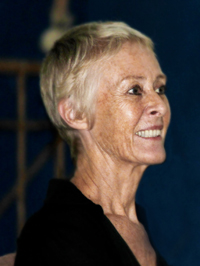 The ABR Copyright Agency Fellowship was part of ABR’s Asian project, with the generous support of Copyright Agency through its Cultural Fund. Jennifer Lindsay was the fourth Fellow. Lindsay wrote a profile of the Indonesian writer Goenawan Mohamad – activist, journalist, editor, essayist, poet, commentator, theatre director, and playwright – whose essays she has been translating for two decades. The profile, 'Man on the Margins', in the October 2012 issue of ABR, focuses on the man and his work, but provides an understanding of the context in which Goenawan Mohamad writes and of the complexities of Indonesia.
The ABR Copyright Agency Fellowship was part of ABR’s Asian project, with the generous support of Copyright Agency through its Cultural Fund. Jennifer Lindsay was the fourth Fellow. Lindsay wrote a profile of the Indonesian writer Goenawan Mohamad – activist, journalist, editor, essayist, poet, commentator, theatre director, and playwright – whose essays she has been translating for two decades. The profile, 'Man on the Margins', in the October 2012 issue of ABR, focuses on the man and his work, but provides an understanding of the context in which Goenawan Mohamad writes and of the complexities of Indonesia.
ABR Sidney Myer Fund Fellowship
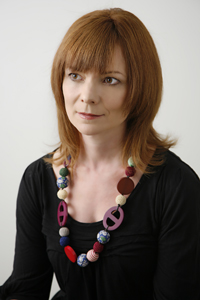 This ABR Sidney Myer Fund Fellowship was for a substantial article with an Indigenous focus. Felicity Plunkett was the third Fellow. Her project was titled ‘Sound Bridges: A Profile of Gurrumul’, a profile of this internationally acclaimed Indigenous artist and his reception. Her essay is published in the June-July 2015 issue of ABR.
This ABR Sidney Myer Fund Fellowship was for a substantial article with an Indigenous focus. Felicity Plunkett was the third Fellow. Her project was titled ‘Sound Bridges: A Profile of Gurrumul’, a profile of this internationally acclaimed Indigenous artist and his reception. Her essay is published in the June-July 2015 issue of ABR.
Plunkett is a freelance writer, critic, and lecturer. She has a BA (Hons) and PhD (Sydney) in Literature. She is the current Poetry Editor of the University of Queensland Press, which recently published her anthology, Thirty Australian Poets. She has taught in several Australian universities and has often written for ABR.
ABR Sidney Myer Fund Fellowship
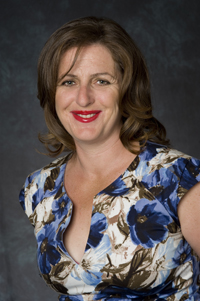 This ABR Sidney Myer Fund Fellowship was for a substantial article with a literary studies focus. Rachel Buchanan was the second Fellow. She is a lecturer in Journalism at La Trobe University, Melbourne, holds a Phd in History from Monash University, and has worked as a journalist for The Age. She is the author of The Parihaka Album: Lest We Forget (2009).
This ABR Sidney Myer Fund Fellowship was for a substantial article with a literary studies focus. Rachel Buchanan was the second Fellow. She is a lecturer in Journalism at La Trobe University, Melbourne, holds a Phd in History from Monash University, and has worked as a journalist for The Age. She is the author of The Parihaka Album: Lest We Forget (2009).
Rachel's long article on archival uses of private papers appears in the December 2011– January 2012 issue of the magazine. In ‘Sweeping up the Ashes’, she investigates the politics and purposes of collecting personal papers at a time when writers, collectors, and institutions are caught between the mystique and permanence of material made by hand and the banality and fragility of machine-made works.
ABR Patrons’ Fellowship
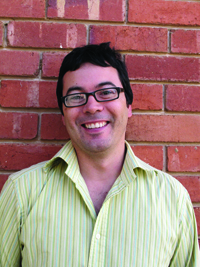 The first ABR Patrons’ Fellowship was for a substantial article with a literary studies focus. Patrick Allington was the inaugural Fellow. Allington’s project was a critique of the Miles Franklin (‘What is Australia Anyway?: The Glorious Limitations of the Miles Franklin Literary Award’). In an article in the June 2011 issue of ABR, he reflects on the Award’s history, strengths, quirks, and past controversies, and fascinatingly, elicits comments from some of the major authors whose works have been excluded from consideration because they don’t ‘present Australian Life in any of its phases’.
The first ABR Patrons’ Fellowship was for a substantial article with a literary studies focus. Patrick Allington was the inaugural Fellow. Allington’s project was a critique of the Miles Franklin (‘What is Australia Anyway?: The Glorious Limitations of the Miles Franklin Literary Award’). In an article in the June 2011 issue of ABR, he reflects on the Award’s history, strengths, quirks, and past controversies, and fascinatingly, elicits comments from some of the major authors whose works have been excluded from consideration because they don’t ‘present Australian Life in any of its phases’.
About ABR Fellowships
Australian Book Review Fellowships are intended to reward outstanding Australian writers, to enhance ABR through the publication of long-form journalism, and to advance the magazine’s commitment to ideas and critical debate. Some Fellowships are themed - others are not.
ABR Fellowships are funded by the magazine's Patrons and in some cases by philanthropic foundations.
We look for stylish and enjoyable journalism that will appeal to our broad international readership.
All published Australian authors are eligible to apply for the Fellowships. When we advertise them, we seek proposals for a substantial article. The Fellowship program offers the successful applicant a chance to produce an extended collaborative non-fiction essay in consultation with ABR. Unlike the Calibre Essay Prize, the Fellowship program is not for finished essays or articles.
Applicants are expected to demonstrate a sophisticated understanding of Australian Book Review - its style, its content, its mission. The Fellowships are not aimed at those who are unfamiliar with ABR. If you do not currently read the magazine, you should purchase copies or subscribe before applying for a Fellowship.
Please read our list of Frequently Asked Questions before contacting us with a question about the ABR Fellowship program.
ABR thanks all of its Patrons who support the magazine through tax-deductible donations of $250 or more. Without this support, the Fellowship program would not exist in its present form.
'My year as an ABR Fellow has been the most rewarding of my writing life. This year I've not only been encouraged, but supported, to press my ear against our culture's chest and listen to its heartbeat. I'm indebted to the ABR team, and its warm and generous community of readers and donors, for giving me the chance to grow into my profession.'
‘The ABR Patrons’ Fellowship is a laudable initiative, and I am grateful and fortunate to have been the inaugural fellow.’
Patrick Allington, ABR Fellow (2010)
‘Making your way as a young Australian writer or literary critic is tough. Funding is limited and opportunities are few. The ABR Fellowship enabled me to do what so many Australian writers can’t: spend extended time on a single piece of work under the guidance of a distinguished editor.’
James McNamara, ABR Fellow (2014)
